cieloclercs
1K posts
i am nothing in my soul if not obsessive
Don't wanna be here? Send us removal request.
Text
the devil works hard but sincaraz editors after wimbledon 2025 work harder
42 notes
·
View notes
Text
ok so i’ve noticed something on tiktok and i don’t know if it’s a coincidence or not, but a lot of my comments are being removed for violating community guidelines at the moment — but they’re only comments where i’m criticising americans or america
so for example my most recent one was on this woman’s post where she was complaining about europeans being arrogant and rude when americans come to europe, and i commented something like it’s actually because you guys are obnoxious (also in my defence if any americans are reading this — i was out with my family in the lake district 2 days ago and there was an american family next to us who were talking SO LOUD that we couldn’t even have our own conversation) but like i don’t think that’s offensive language or worthy of my comment getting removed??
but then the other big one that got removed was on this woman’s post where she was complaining about the european view of americans as less intelligent — so i commented actually it’s because you guys were stupid enough to vote donald trump in twice — and THAT got removed as well. again, not using offensive language, just stating the truth!
there are a number of other comments i made criticising americans and america, and pretty much all of them have been removed. i’ve made other similar comments not connected to america, but it’s ONLY the ones about america that are getting removed. like i know tiktok’s guidelines can be overly sensitive sometimes, but it’s ONLY those ones
i’m not imagining this right?
2 notes
·
View notes
Text
when i tell you i SCREAMED when i saw christian horner’s been sacked my mum thought i was dying
9 notes
·
View notes
Text
here the whole time ⸻ oscar piastri x reader .
featuring oscar piastri , uni au , oscar and reader’s relationship is kinda two dumb bitches telling each other exactlyyyyy , lando and george haunting the narrative author’s note requested by anon! i’m sorry this took so long but i hope this lived up to your expectations <3 this is my official contribution to the oscar piastri cringefail loserboy agenda !! i’m still getting the hang of smaus so don’t hate me too bad for this . as always please lmk what you think , i love to hear from yall ! title is from you belong with me by taylor swift !

liked by oscarpiastri, yourbff and 549 others yourusername breaking news: local girl is cold but she’s being really really brave about it
student1 giving editor in chief OF MY HEART ♥ liked by author student2 hiiii i hope this isn’t too weird but i’m a freshman and i really wanted to join the chronicle last semester but missed the app deadline, is there still a way i can get involved? ⤷ yourusername omg of course!! dm me, we’d love to have you on board 😎 ⤷ yourbff best co-EIC frfr!! ♥ liked by author georgerussell63 Looking forward to working with you again! ♥ liked by author ⤷ yourusername george we’ve been friends for 4 years why are you in my instagram comments like you’re my 40 year old coworker 😭😭😭 student3 she edits, she writes, she gatekeeps the google drive, she looks good doing it!!! oscarpiastri Cool photos 👍 ⤷ yourusername thanks osc!!
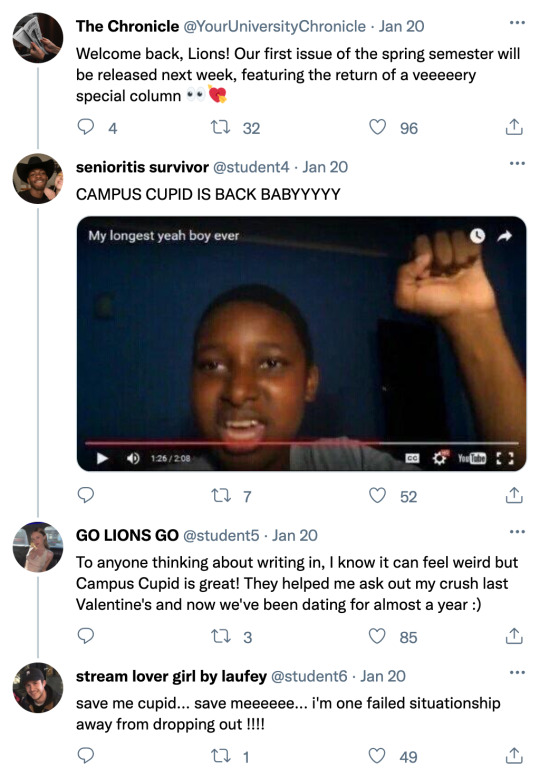
───────── ☆ ─────────
to: Campus Cupid <[email protected]> from: Oscar Piastri <[email protected]> subject: Crush advice?
Hi Cupid,
This is slightly embarrassing, and I’m not totally sure how this works because I’ve never actually read your column, but my friend Lando said you give decent advice. Honestly, I could really use some, because I’m properly hopeless at this stuff. So here goes.
There’s this girl I like. We’re not super close or anything, but we kind of orbit around each other if that makes sense? You know, a few mutual friends, some classes together, that kind of stuff. She’s brilliant — like genuinely really smart, and always has takes that make me see things differently. And she’s funny too. She’s got this way of making little offhand observations that just make me laugh. Stunning as well, but honestly that doesn’t crack the top 10 of things I like about her. She’s just… amazing, basically, and ridiculously out of my league.
The issue is I have no idea whether she thinks of me as more than a friend. I’m not great at the whole romance thing to begin with, and I definitely don’t know how to figure out if she likes me or not. And even if she did, how am I supposed to tell her I like her? Do I just say it and hope for the best? Drop hints and pray she picks up on them? Keep emotionally repressing the feelings until I explode (which at this point is kind of seeming like the most likely option?)
I don’t want to make things uncomfortable for her or put pressure on her, but I also don’t want to spend the rest of the semester pretending I’m not interested when I definitely am. Would love some advice from the romance expert.
— Sincerely, A Very Lost Cause (you can pick something less cringe if you want. I couldn’t really think of anything good. Yikes, I’m overthinking the sign-off too, aren’t I?) ───────── ☆ ─────────
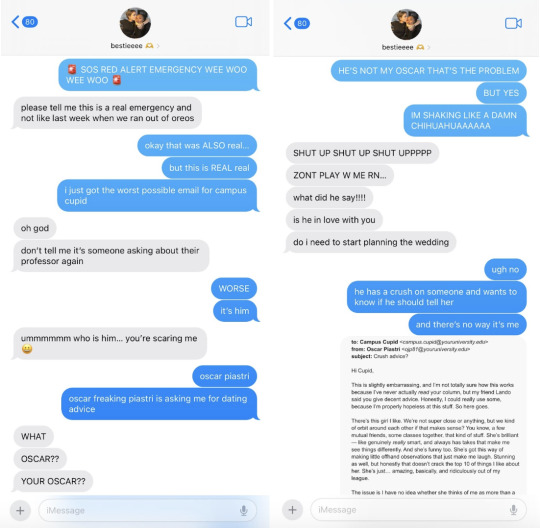
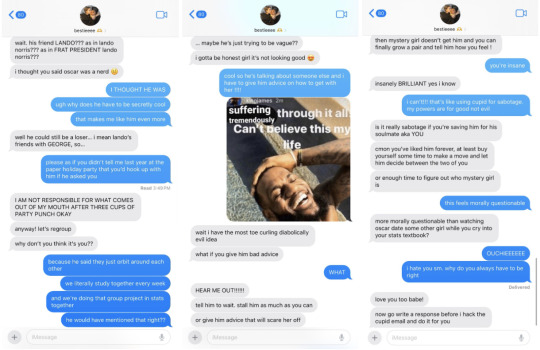
───────── ☆ ─────────

January 24
Welcome back to Cupid’s corner, where your love life is my business. Whether you’re falling in love or falling flat on your face, I’m here to help! XOXO, Cupid 💌
Q: My situationship told me he’s “emotionally available in theory,” but when I asked him to share how he’s feeling about us, he didn’t respond until 2 AM asking me to come over and talk about it. What does this mean? — Theoretical Thot
A: Dear Theoretical Thot, it sounds like he’s “emotionally available” the way that your professor is “available outside of office hours” — AKA, he’s not. Plus, the 2 AM text is the emotional equivalent of suggesting you meet up to discuss your relationship at a frat party: technically possible, but the environment isn’t exactly screaming meaningful conversation. If he was really willing to talk, that’s great, but make sure he’s not just creating an excuse to find you in his bed again! You deserve someone who doesn’t treat their feelings and yours like a part time job.
Q: I want to do something cute for my girlfriend for Valentine’s Day, but I spent my extra money on this fancy protein powder and now I’m completely broke. What’s a good budget Valentine’s idea? — Rich in Love (Poor in Cash)
A: Dear Rich in Love, it’s so sweet that you’re thinking about Valentine’s Day plans already. Broke V-Day is basically an extreme sport at this point, but it doesn’t mean you can’t still score! Being creative is wayyyy sexier than throwing a bunch of money. Write her a love letter! Or make her a playlist! You could even do a scavenger hunt connected to moments in your relationship. Years from now, she’ll remember the thought you put in, not the money you spent. Whatever you do, just make sure it’s from the heart! And maybe lay off the protein powder.
Q: I’ve got a crush on a friend of mine, but I have no idea whether she sees me as more than a friend or how to tell her I like her without making things weird. Help! — A Very Lost Cause
A: Dear Lost Cause, this is a tricky situation. I get the urge to go full rom-com and just confess your feelings, but maybe you should pump the brakes a little. If she IS interested, she’s probably already picking up on your energy. Maybe act a little bit less available? Sometimes people need space to realize exactly what… or who… they’re missing. But (out of purely professional curiosity, of course) what kind of friend are we talking? Lab partner? Frat sweetheart? My advice might change with a little more background info.
Campus Cupid will run weekly until Valentine’s Day. After that, I turn back into a pumpkin (or just another regular student who cries in the library). Need help with a crush crisis? Email me at [email protected]. XOXO! ───────── ☆ ─────────
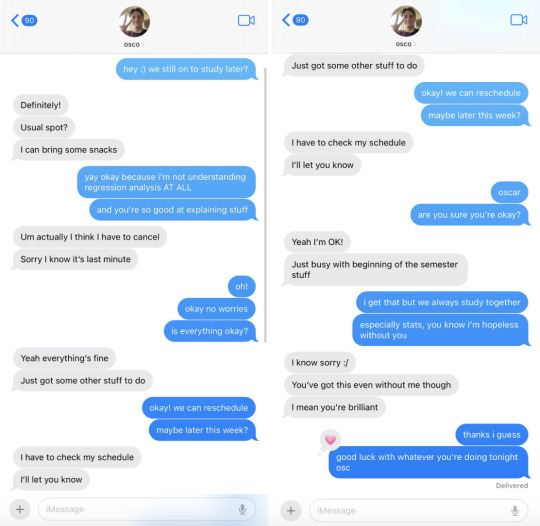
───────── ☆ ─────────
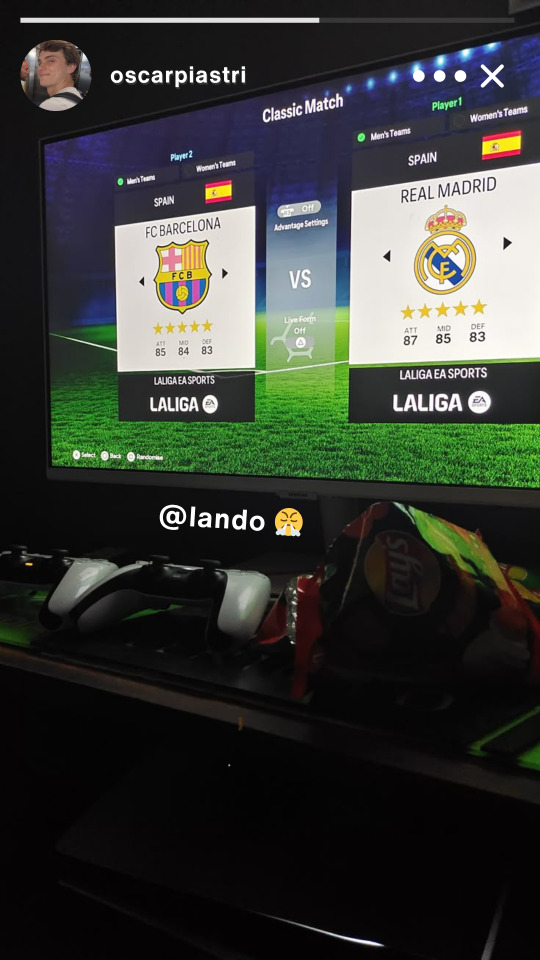
♥ lando, yourusername and georgerussell63 liked this story!
───────── ☆ ─────────
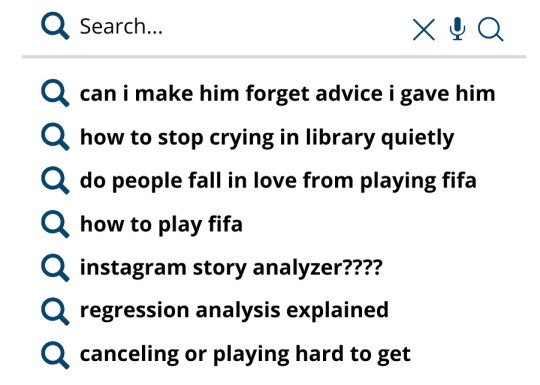
───────── ☆ ─────────
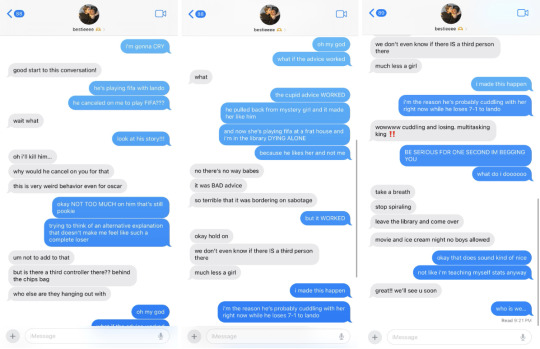
───────── ☆ ─────────
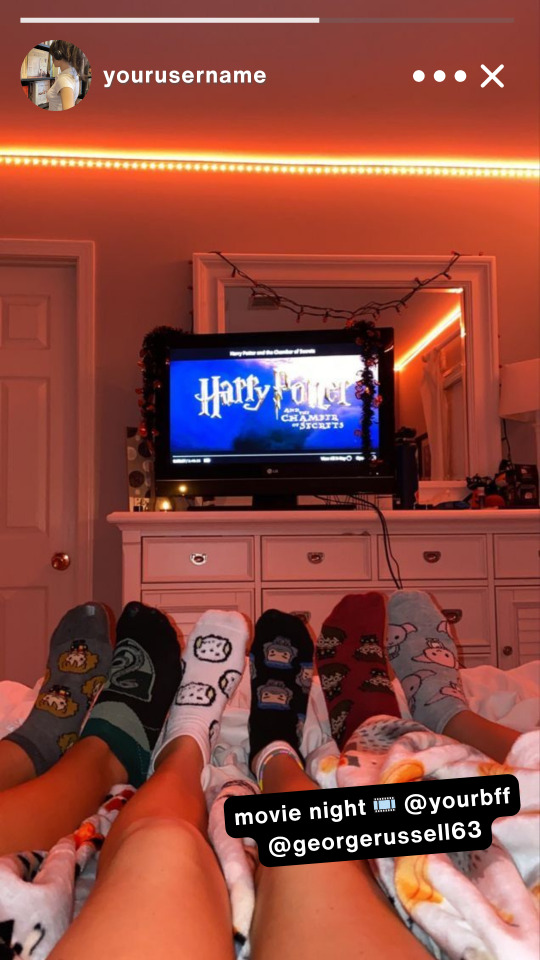
♥ yourbff, oscarpiastri and georgerussell63 liked this story!
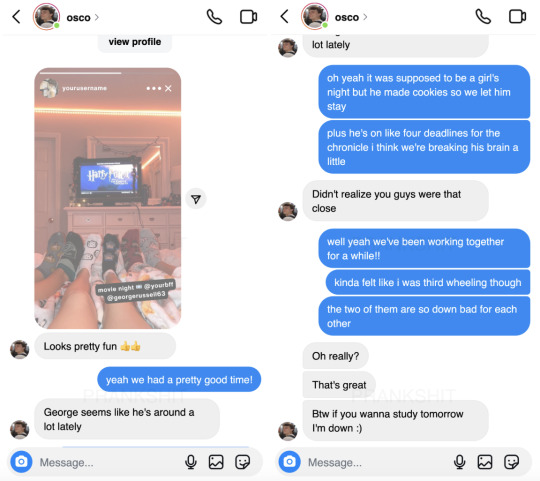
───────── ☆ ───────── to: Campus Cupid <[email protected]> from: Oscar Piastri <[email protected]> subject: re: Crush advice?
Hi Cupid,
Me again (still a Very Lost Cause, I fear.) Thanks for answering my question last week.
I tried your advice about pulling back and being less available, but I think it didn’t work. Or maybe I’m just shit at following advice. Probably both. The thing is, I think I’m sort of terrible at playing it cool. Every time I tried to give her space or forced myself to wait before texting her back, I was pretty much just staring at my phone like an idiot. And when I canceled plans with her, I spent half the night feeling like a complete dropkick and wishing I hadn’t. I ended up messaging her anyway — couldn’t even ignore her for more than a few hours.
The really pathetic thing, and I can’t believe I’m admitting this, is that I got jealous. Like properly jealous over nothing, which is insane, because I have no right to be, especially when I’m the one who backed off. But she was hanging out with this guy I thought might be into her, and for a few hours I genuinely considered transferring uni's. Turns out he’s not (thank God), but it kind of proves my point.
I can’t play it cool with her. I don’t want to pull back. I like being around her. I like talking to her. I like the way she scrunches her nose when she’s confused. I like how she always has something smart to say even when she’s completely exhausted. I like that she always remembers the small things I say even when I don’t think she’s listening. I like her, full stop. And the more time I spend trying to act like I don’t, the worse it feels.
So. Since pulling back didn’t work, what do I do now?
— Sincerely, your Very Very Lost Cause ───────── ☆ ─────────
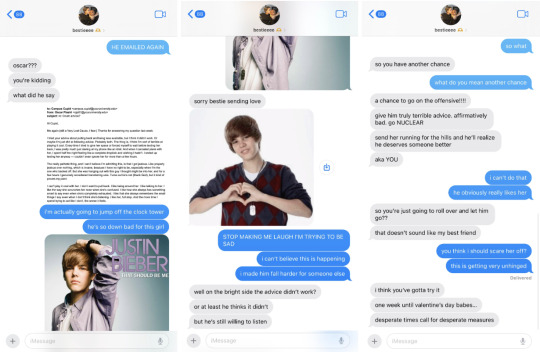
───────── ☆ ─────────

February 7
Welcome back to Cupid’s corner! Because nothing says happy Valentine’s Day like mild emotional panic sent to an anonymous advice columnist. Let’s fix your love life (and maybe mine too!) XOXO, Cupid 💌
Q: I had one too many cups of jungle juice at my frat’s mixer this weekend and accidentally liked my crush’s Instagram post from 2013. Should I transfer schools? — Butterfingers
A: Dear Butterfingers, take a deep breath. Although I get your impulse to flee the country, this is not a transfer-worthy offense. Here’s a wild idea: use this as an excuse to actually talk to them! Apologize for your social media snafu and follow it up with actual conversation. Or just pretend it never happened and continue living in denial like the rest of us.
Q: I matched with my econ professor’s son on Tinder. We’ve been talking a little, and I kind of like him, but now I’m starting to feel super weird in lecture. Help! — Hot for Teacher(’s Son)
A: Dear Hot for Teacher(’s Son), what do you value more? The class or the guy? It sounds like it’s still early enough to drop either one. If you keep talking to him, you're going to spend every lecture wondering if Professor Dad knows you're the one sliding into his son's DMs. And if things go south romantically, you'll still have to sit through a whole semester of avoiding eye contact while learning about supply and demand curves. My advice? Be upfront with the guy about the situation and let him decide if he's comfortable with it too. If you're both cool with the weirdness, go for it. Just maybe don't bring him as your +1 to any department events.
Q: I tried to take your advice and pull back, but I don’t think it worked. I’m not good at playing it cool. What else could I do to make it clear that I like her? — A Very Very Lost Cause
A: Dear Lost Cause, I’m glad you’re back! Look, if playing it cool isn’t working, maybe it’s time to go in the complete opposite direction. Sometimes you have to be bold and put yourself out there in a big way. Here’s what I’m thinking: make a public gesture. Do something that gets people’s attention — at a party, or in front of your friends, or somewhere on campus where people will see. The bigger and more public, the better!
Campus Cupid will run weekly until Valentine’s Day, after which I disappear into the mist like every good university urban legend. Time is running out to send me your burning questions and bad romantic choices at [email protected]. XOXO!
───────── ☆ ─────────

liked by yourbff, lando, and 632 others yourusername working hard or hardly working? (hint it’s working hard we are working VERY HARD)
yourbff putting the DEAD in deadline ♥ liked by author student7 shoutout to red bull and crying in the print lab!! georgerussell63 You said you wouldn’t post it!!!!! ⤷ yourusername me when i lie :) ⤷ yourbff thank you for this GIFT student8 if we die bury us in the layout room prof.hamilton Amazing work!! So proud of my advisees ♥ liked by author oscarpiastri Killing it!! ♥ liked by author ⤷ yourusername my emotional support oscar 🥹 student9 she’s beauty she’s grace she hasn’t slept in 48 hours lando can you send that picture of gorge to me please
───────── ☆ ─────────
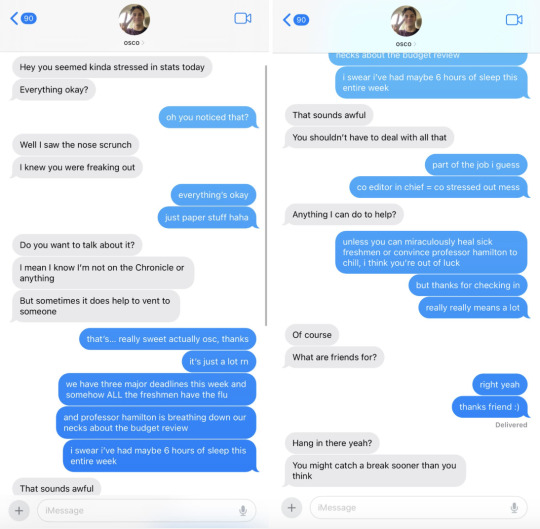
───────── ☆ ─────────
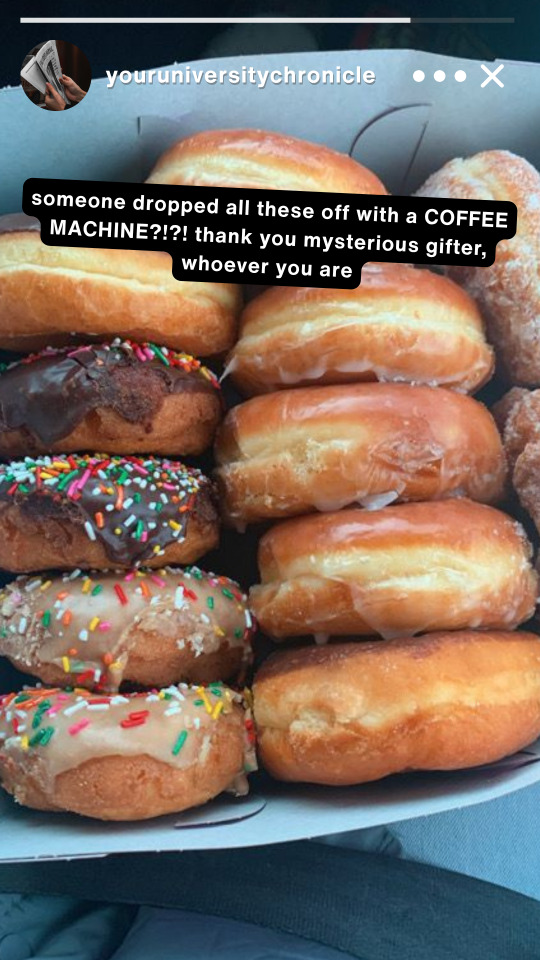
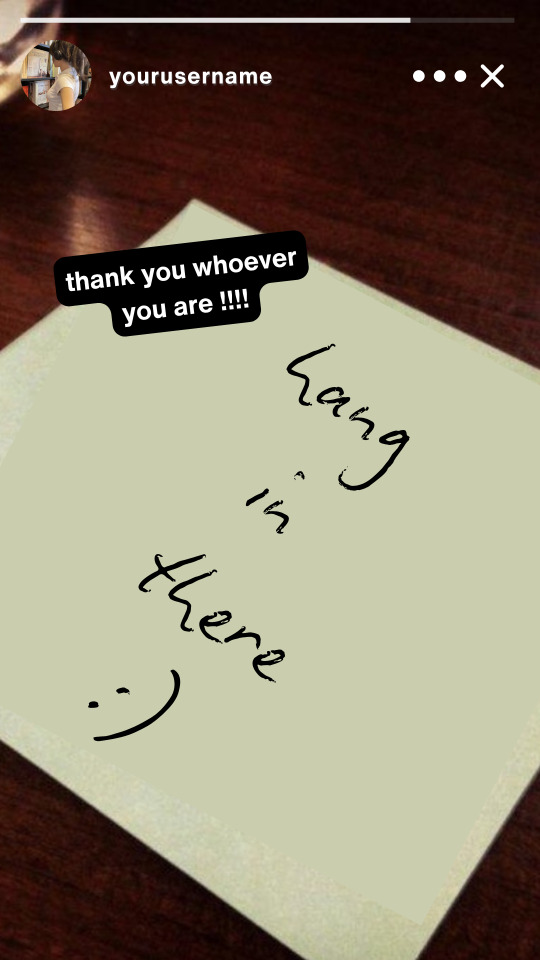
───────── ☆ ─────────
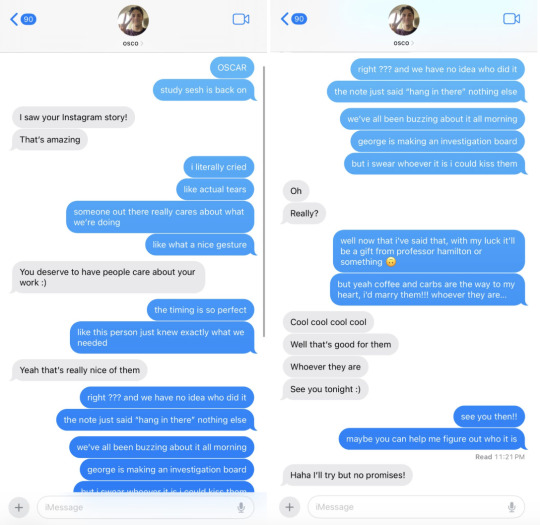
───────── ☆ ─────────
to: Campus Cupid <[email protected]> from: Oscar Piastri <[email protected]> subject: re: re: Crush advice?
Hi Cupid,
Me again — for the last time, I swear! Although I think your inbox is probably closing anyway, given that it’s almost Valentine’s Day.
First of all, thanks for your advice. It pretty much all terrified me, but I think I needed the push to stop overthinking everything. You made me feel a little less like an idiot fumbling around in the dark with this stuff, which honestly is a minor miracle. Even though your advice didn’t work out, it was definitely better than Lando's. To be honest, I probably wouldn’t have gotten where I am without you.
Which brings me to where I am, I guess. As much as I want to beg you for more advice, as much as I want to stall and make it absolutely perfect for her, I think I’ve gotten to the point where no guidance, even from the self-proclaimed campus love expert, is going to make this any easier.
There is no perfect way to say it. There is no magic sentence, no secret signal that will make everything fall into place. I like her, and I don’t want to waste any more time pretending I don’t or hoping she figures it out on her own.
So I’m just going to tell her. No schemes to figure out if she likes me too. No grand gestures that I forget to put my name on. Just us — just me, finally saying what’s been on my mind for a while. And whatever happens, at least I’ll know I said it.
Wish me luck, Cupid. Who knows? Maybe you’ll get another success story out of it.
— Sincerely, Oscar
PS: Also, I’m sorry I never answered your question about who she was to me. Maybe it would have made for better advice, but since you work for the Chronicle you probably know her, so I didn’t want to risk it. ───────── ☆ ─────────
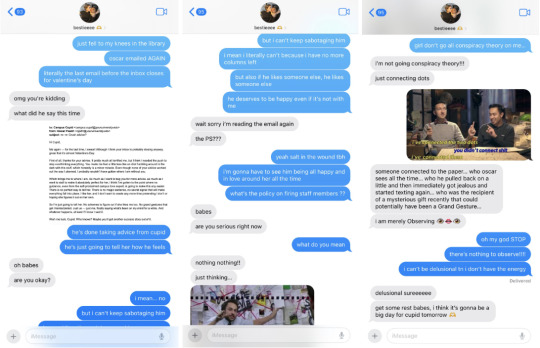
───────── ☆ ─────────
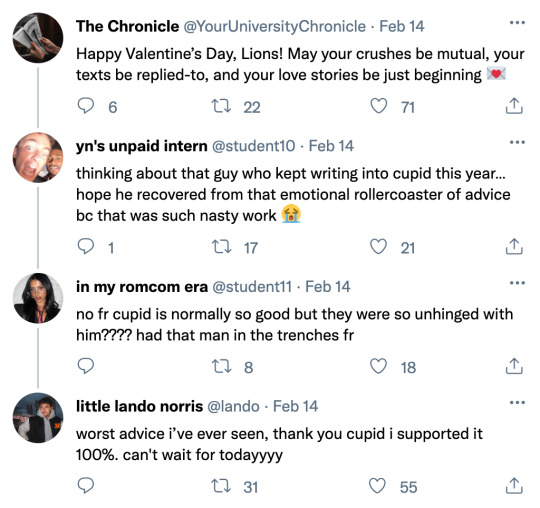
───────── ☆ ─────────
you have (1) missed call from osco • listen to voicemail? 1:21 ▶‖ •၊၊||၊|။||||။၊|။•
“Hey, Happy Valentine's Day. Okay. Um… okay. [soft laugh] I really don’t know what I’m doing, or why I thought I’d be able to say this without getting nervous, but, uh, here goes. [sigh] This wasn’t how I planned it, you know. I was going to tell you after class like a normal person. But you didn’t show up, and now I’ve got all this stuff I want to say to you and nowhere to put it but your voicemail. I — I like you. A lot. Like, emailed Campus Cupid multiple times trying to figure out how to tell you, a lot. I tried to follow their advice and pull back, but I couldn’t really… stay away from you. [laugh] I mean, I bought the entire Chronicle donuts and a coffee machine because I thought it might make it obvious to you that I liked you. But even after all of that, I don’t know if you feel the same way. I really don’t. Just… I don’t know, I couldn’t not tell you, even if you don’t feel that way about me. [pause] And now I’m running to yours because I just realized I’m a complete idiot for not saying this to your face. I’ll be there in 10 minutes, just — please answer the door? Oh. Shit. Uh, this is Oscar by the way.”
───────── ☆ ─────────
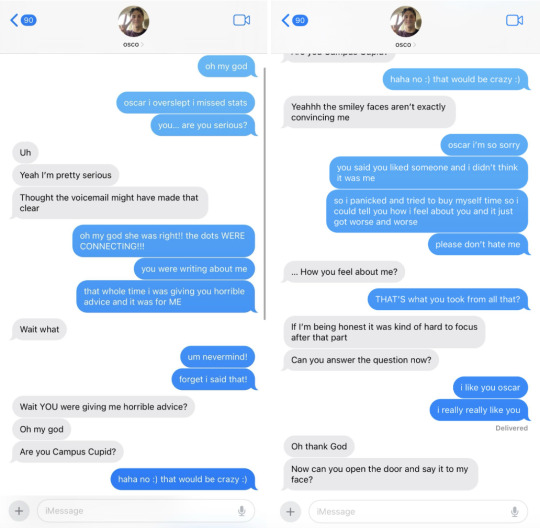
───────── ☆ ─────────

liked by oscarpiastri, yourbff and 1,092 others yourusername turns out my “bad advice” was some of my best. campus cupid signing off, xoxo 💌
yourbff pause for the big reveal… ♥ liked by author ⤷ yourusername and they never saw it coming babyyyy yourbff i called oscyn btw 😤😤 never back down never WHAT student12 YOU’RE CAMPUS CUPID???? georgerussell63 Blimey are you serious? Never would have guessed it, well done xx ⤷ yourbff george try not to sound intensely british challenge [FAILED] [NOT CLICKBAIT] ⤷ georgerussell63 @ yourbff you love it ⤷ yourbff oh 🫠 i kinda do ??? student13 absolutely iconic announcement + hard launch student14 OBSESSED WITH THIS you two are so cute !! oscarpiastri Love you (even though you sabotaged me) ♥ liked by author ⤷ yourusername love you too (i looked really cute doing it though right?) ⤷ oscarpiastri The cutest ⤷ lando gross get a room
1K notes
·
View notes
Text


· · · · ♡ NO LOVE IN NEW YORK
… starring oscar piastri x f!reader ... 5.2k words ... in which your good samaritan tendencies, and some loser forgetting to show up on your first date, lead you to the most bizarre yet exhilarating nyc commute of your life. ... featuring fluff, humor, meet cute, some forced proximity. female reader (wears 'feminine' clothing). language, reader gets stood up on a date, suspension of disbelief for manhattan geography and the logistics of the mta (please forgive me new yorkers i went ten years ago). english is not my first language. ... author notes tadaaa oscar piastri debut who cheered!!!! not me because i'm scared to death of getting him wrong lowk. i was bemoaning the absence of oscar pictures at the f1 premiere and thought, "i know he just couldn't be bothered to go, but wouldn't it be funny if he'd just gotten lost?" and thats how this fic happened. ngl this is very much out of my comfort zone, i know oscar less than other drivers + much more romcom than i'm used to and idk how i feel about it so feedback would be VERY appreciated! very much open for a part 2 if you'd like that tho!!! enjoy ヘ(≧▽≦ヘ)♪ MASTERLIST / ASK BOX

There was no valid reason dating in New York City should have been this complicated.
Yet you prided yourself on being quite smart—smart enough to survive in the hostile urban jungle as a twenty-something on her own; definitely smarter than the national average judging by the (frankly depressing) headlines you heard pinging on your phone every morning. Outstanding high school GPA, reading comprehension way above your grade as a kid, and still no damn clue how to score a date in Manhattan.
Well, rather, how to score an agreeable date. Or perhaps just one that turned out to be real.
Monday morning had risen with a yawn from the sun, as though it were remembering only now that June was well underway but the streets remained chilly. Weak light shimmered over the fire escape when you’d drawn your curtains open. Ramen was sitting on the railing, licking his cream paw and staring at you with unimpressed nonchalance, and you’d grinned. Ramen—your downstairs neighbor’s cat, a sandy little imp whose real name you’d never found out but had baptized so after he’d stolen your instant dinner right off your kitchen counter—only showed up on mornings with importance. Like the day you’d aced Introduction to Statistics with nothing but two hours of sleep and five Monsters.
This was a good omen.
So yes, you were enthusiastic by the time you got home from class, scrambled together an omelet, and disemboweled your apartment looking for your favorite earrings. You were optimistic, and that sometimes sounded like the worst thing anyone could be in New York City.
But this first date promised to be nothing like the others, your inner voice hammered home as you tried to cram your feet into shoes half a size too small. He was cute, funny, not a fascist, he waited exactly the right amount of time in between replies—neither psychopathic nor disinterested—, and he’d told you to dress up because it was only fair that real-life art should match the paintings on the wall. After half a dozen insipid dinners at every other pizza place in Little Italy, and as many ghostings, a museum first date sounded more promising than you’d dared to hope.
Even though he dropped off the radar at ten p.m. the prior evening. Even though you shot him a bubbly, “you said 2:30pm right? can’t wait!” at eleven (the appointed time was but a scroll away, but you just needed to say something, diffuse the nerves somehow). Even though you double-texted him at two fifteen, “omw!”.
But Ramen was there this morning, blinking his slow blinks at you. The date had to go well.
The sun was fully awake, undeniable, blazing above the trees and endless spires piercing the sky beyond Central Park, by the time you sat down on the steps in front of the museum. Alone.
It wasn’t until two fifty-seven that you accepted to face the glaring truth.
First miss for Ramen.
You collected yourself in a clumsy torpor. Nothing to do with your heels, or the stupidly long dress you’d picked out and whose skirt you now had to lift with every step—this was the inescapable, crushing feeling of disappointment.
Of course New York City would punish the optimistic. The naïve. The superstitious, who put the outcome of their days into the hands of some feline apparition, scan the sky for four-leaf clover clouds. Served you right for still believing in things falling into place.
Your face burned from the sun and the humiliation, eyes prickling from unshed tears as you stuffed your phone into your purse. Pretended not to notice the group of tourists snapping shots of you, perhaps thinking you some roaming Millais muse. Disappeared into the shade of 103rd Street station, green gown flowing behind you like a pennon.
Every step down the long stairway stung more than the last, but you kept your gaze firmly to the ground, careful not to trip—and bury any ounce of dignity left in you for good. Blend in with the jaded city folk, you thought as you swiped your Metrocard; act as if you know exactly where you are going and go there with purpose, even if you could not be more stranded. Where to now? Back to your disordered, sweltering apartment, its haphazard pile of dishes in the sink and Ramen gauging you silently from the windowsill? Or to the campus library, trying to glean whatever productivity lies within heartbreak? And risk bumping into your friends, who’d teased you all day about the giddy bounce to your step, and having to explain you weren’t even worth showing up for?
“Excuse me?”
You looked up and met hazel. A mop of chestnut hair, that he had manifestly tried to arrange before giving up; discreet moles on an otherwise pale face, and brown eyes where danced flecks of gold and the most gripping kind of urgent resignation. The stranger was cute, and for some incomprehensible reason he matched you: he, too, was dressed to the nines like he’d run off from some wedding, and he also distinctly looked like he wished more than anything for the Earth to swallow him.
“Are you going to the F1 movie premiere?”
“What?”
“The, uh, the F1 movie red carpet thing? Are you going there right now?”
You were starting to worry your foreign-accent (British, or perhaps Australian?) comprehension skills had gotten alarmingly bad, or maybe the shrieking of MTA wagon brakes had finally rendered you deaf.
“No, uh... I…” Oh, what the hell. Like there was any use lying to a beautiful stranger who seemed like he was somehow having a worse afternoon than yours. “I got stood up by my date. F1, you mean like Formula 1?”
What a formidable and ridiculous scene you two must’ve painted—two kids in formalwear, standing in the middle of a New York City subway platform, stuck amidst the pungent smell of piss and nonsensical conversation.
“I’m sorry about your date, they sound like a bit of a dropkick,” the stranger replied, and although you weren’t entirely sure what a dropkick was you were surprised to find him genuine. “But, uh… I think I’m lost, and I hoped you might help me, or else I’m gonna be the one doing the standing up. On about two thousand people.”
You had no time to furrow your brow, or chew on his words. Suddenly everything clicked with an audible bang, right in sync with the train doors closing to your left. The reason you’d felt so familiarly drawn to that cherub face, and why he had mentioned Formula 1… None of the downright lubricious Instagram edits your best friend had ever sent you featured him in a suit, but he was unmistakable.
“Oh my god, you’re Oscar Pia—”
“Please don’t tell all of Manhattan,” Piastri interrupted, grimacing as he glanced around the platform. You suffocated your voice, though found his dread of being heard a little pointless. Two people standing idly in black-tie garments as metros passed them by were eye-catching, for sure, but nowhere near NYC eye-catching standards. “It’s already pretty bad how late I am to my own premiere, I don’t want to have to take selfies in the subway.”
A million questions jostled about inside your head, but all you could do was stare at him, mouth agape in incomprehension. You didn’t keep up with Formula 1, hardly saw any point in cars going in circles, and perhaps a McLaren (was it McLaren or Mercedes?) superfan might have known better than you what the fuck Oscar Piastri was doing there. Not the film premiere gimmick, you were willing to believe that was the kind of fanfare F1 drivers spent their off-days doing—what the fuck he was doing alone at three in the afternoon, asking for your help in some acrid station on Lexington Avenue.
“Couldn’t you just drive to the damn premiere?”
“Oh, right, so I should just steal a car off the street?” he deadpanned.
“No, I mean… don’t you have a chauffeur? An… an agent or something? A team? How do you even end up…” you trailed off, finding no words that wouldn’t bring you to astonished frustration. Instead, you opened your arms wide, encompassing all of New York’s rickety railways. “Here?”
Piastri parted his lips to retort with one of his impassive quips, but his whole face fractured then with tremendous vulnerability.
“I’ll tell you if you help me find my way. Please?”
He did not look like the type of man who’d ever begged anyone to do anything for him—you expected a high-adrenaline junkie like him to pray for neither forgiveness nor permission—and the contrast made you consider. That, and the sheer absurdity of the situation. And the fact the only other way you could see your afternoon ending was with an onslaught of messages from some guy assuring you life had gotten “sooo hectic” in the last ten to twelve hours.
Piastri was much cuter than him anyway.
“You know what, yeah, sure, what the hell,” you shrugged with a growing smile. “I’ll help you. I could use the good karma. I’m Y/N, by the way.”
This whole plan was utterly ridiculous, and you had no idea how you’d possibly explain that to your friends when they’d ask how your date had gone, but the way Piastri deflated with relief, like his whole body was exhaling, had you convinced you’d made the right call.
“Thanks, Y/N.” He said your name with the slightest of accents, and you caught yourself wishing he could say it again. “Maps said this was the shortest path to Times Square, but I think it’s a little confused—”
“Times Square? Oh, you’re not getting anywhere near that on the 6. We need to get to Central Park North. You coming?”
You tilted your head to the side, to the staircase drenched in hazy summer light, and Piastri seemed to be weighing the pros and cons for a split second—you couldn’t fault him, to be fair; you could’ve been a stalker, or a lunatic, or the lowest echelon to a weird MLM scheme. Still, he must’ve decided whatever you were recruiting him for was less dangerous than missing this premiere, because he took off after you.
When he billowed out of the station and back into the city, Piastri winced, and at first you assumed it due to the piercing sunlight reverberating on glassy panels, or the cacophony of horns and engines. However, you quickly noticed him glancing at the passersby with frantic interest… and looking puzzled at their utter disinterest in him.
“Relax, no one’s looking at us,” you reassured him, striding down the street on autopilot. He jogged two steps to catch up.
“You sure?”
“Certain. There’s so many people in New York City, and so many of those people do weird shit, that practically anyone can go unnoticed. I assure you that this,” you gestured down at your long dress, catching the light like rippling topazes, then at the silver cufflinks on his jacket, “does not even make the top 5 weirdest things any of these people have seen today.”
But the Australian looked unsure still, twisting his thin lips in a crooked zigzag, so you stopped in your tracks and hailed a young lady passing you by on the sidewalk, Airpods firmly bolted inside her ears.
“Excuse me, do you know who this guy is—”
She strode past you with the most furtive glance biologically possible and a mechanical Nothankyouhaveagoodday. You turned back to Piastri.
“See? No one cares.”
He chuckled, face breaking like dawn, and you chuckled too with no real reason. You weren’t too sure what was funny about typical New York callousness, but the way Piastri’s eyes crinkled, still somewhat strained from stress but illuminating all his features, made you all fuzzy inside. Up close and under sunlight, he looked even younger than you’d thought, no more than twenty-five, and the shadows on his face had lifted, rounding the angles and softening the corners. Like he’d been oil-painted on canvas, ochres and whites melting into each other at the edges.
“Okay, I guess you’re the local,” he conceded, and you resumed your brisk walk.
Maybe you really were at the museum, after all.
“So,” you spoke up after a bit. “I was promised a story.”
“Right,” he clicked his tongue against the roof of his mouth, clearly regretting his bartering skills.
“How do you, Oscar Piastri, end up late to a movie premiere and alone in a subway station?” You stepped across a grate on the sidewalk, careful not to wedge your heel in the holes. “They just left you behind? Did you oversleep or what?”
No reply, but his dry laughter morphing into a cough was a flagrant enough response.
“Oh my God, Piastri,” you gasped merrily. “Did you seriously sleep through your movie premiere?”
“No! … It’s not over yet. I’m just late for the red carpet part. I can still make it to the screening.”
You stared, unconvinced, and he stared back, unconvincing. Biting the inside of his cheek, he watched your smile grow wider until he couldn’t take your teasing anymore. For heaven’s sake—you’d known him a grand total of five minutes and were already tormenting him!
“What?”
“How do they let you get away with this?”
“I was racing in Canada yesterday! God forbid a guy wants a nap,” he stressed the last as though it were some capital punishment and rolled his eyes.
Something in his demeanor was fabulously amusing. He was all relaxed tension, calculated coldness akin to what you’d expect from a person who’s constantly scrutinized; yet there was something more, a sort of agitation bubbling within, under the pores of his handsome face. Feeling so deeply and letting a stranger see so much was not in his nature, that much was clear. Every microexpression, in the lift of his brows, the curve of his lips, the arc of his eyes betrayed a kind of imbalance. He was losing his footing, like a glacier abraded from the top by the sun.
New York City had trained you for all sorts of people, including still waters like him. How to ripple their surface.
“Does this happen to you often?”
“No. Never.”
“Never missed a flight?”
“Just once. My mom woke me up screaming one hour before boarding the second ti—watch out.”
Swiftly, he grabbed your elbow and switched your spots on the sidewalk, pushing you closer to the wall. Before you could open your mouth to protest, the ground rattled from a firetruck barreling past you, ruffling Piastri’s hair and the lapels of his jacket.
“But I set three different alarms on my phone and I figured, Lando will probably break my door down if I sleep through them, so I’m safe,” he resumed, entirely unfazed. You looked up at him like he’d just performed actual magic. “But… apparently not. I woke up… twenty minutes ago?” That explained the slim, red pillow mark on his face you’d mistaken for a fading sunburn. “I wanted to call a taxi, but they’ve cut off traffic. It’s a big deal, you know? Brad Pitt’s gonna be there.”
The way he said Brad Pitt, with a tone so level it became thick with meaning and the littlest of jazz hands, made it abundantly clear there were few people on Earth Oscar Piastri would’ve been less excited about than Brad Pitt.
“Are you in it?”
“What?”
“The movie. Are you even in it?”
“Uh, my elbow is. Minute fifty-three.”
“Wow,” you giggled, arching your eyebrows in a playful wave. “So am I talking to Oscar Piastri the pro athlete, or Oscar Piastri the movie star?”
“Eh, just Oscar Piastri’s fine,” he shrugged, non-committal, though the glint of a smile now flickered uninterrupted on the corner of his lips, almost real enough to remark upon.
Your steps had carried you to the subway entrance north of Central Park already—too soon, far too soon, you thought with a faint ache in the chest. Piastri stirred in your body some kind of early-summer warmth, soft and shimmering like a drowsy morning. As soon as he would vanish to the far side of the platform, only the icy wind would remain, howling endlessly through the corridors…
Piastri, however, did not seem set on giving you up. At least judging by the tiny, tentative steps he took as he walked up to the turnstile, as though the machine could eat him the way it did cardboard tickets. You saw him take out a small, green-lettered card from his pocket… and stopped him.
“Wait, that’s not gonna work.”
“Huh?”
“Your ticket, it’s a single ride. You used that back there on Lexington, right?”
“Uh, I guess?”
“You don’t have a Metrocard?”
He turned to you, puzzled, and almost slammed into a hurried businessman in the process. Thankfully for Piastri, even assault was too inconsequential to reroute the average New Yorker, and the man just breezed past the turnstile and into the guts of the Earth with a nasty glare and a taunting beep!
“Why would I have a Metrocard, Y/N, I’m in this city about twelve hours a year.”
You glanced toward the entrance, where a faint trickle of light still seeped in. A flock of little old ladies, perhaps en route to a high-stakes bingo showdown, had laid siege to the terminals. Judging by their furrowed brows and squinting eyes, no one else in the station would be seeing so much as a hint of a ticket anytime soon.
Goodness gracious. Your helpfulness would be your undoing.
“How late are you to this thing?”
Piastri checked his watch. “Very.”
“And how much do you care about being late to this thing?”
“Normal dude Oscar Piastri? Not so much, to be honest. Formula 1 driver Oscar Piastri…”
“Say less.”
Veritable horror surfaced on Piastri’s face at your confident strides, as if he imagined you were about to vandalize your way through the gates.
“Come on! Hop over,” you signaled.
“Uh…”
“Or we could wait in line. Your call.” Like trying to get a puppy to jump through a hoop. What was he waiting for, a treat?
Or perhaps the patrol of inspectors coming down the hallway at the exact same second as Piastri gathered momentum and jumped the turnstile. That, too, seemed like a sensible thing to be on the lookout for.
The two men cried out right as his dress shoes hit the ground.
“Oh come on!” you whined. “They’re never here!”
“What do we do?!” he cried.
“What do you mean, what do we do? Just book it!”
You heard a cacophony of footsteps behind your back, promptly echoed by lighter sounds as Piastri ran down the corridor. Without a second glance, you pushed down on your hands, swung your legs forward, and… came to an abrupt halt mid-air. Looked down. Sage green fabric had wrapped around the metal blades of the turnstile, like snakes constricting their branches.
“Oscar!” you yelped.
If you’d had any doubt Oscar Piastri was the real racing deal until now, they were all silenced at once from the way he spun on his heels, ran back to you and, without a split second’s hesitation, not even the span of a breath, picked you up from your perch and took off. Instinctively your arms wrapped around the taut base of his neck as you felt his clammy hands slide down your back: the glossy fabric offered no grip to hold on to, yet his strong arms held you into place as tightly as they could. You gritted your teeth, prayed to God your heels would not fall off, and watched in stunned silence as Oscar raced down the stifling hallways.
It seemed like but an instant had passed when Oscar threw himself into the belly of the train, its imminent departure chime his very own chequered flag, and the old doors rattled shut behind you. For the first time, New Yorkers shot you strange looks. Finally you had crossed their threshold for urban bizarrerie.
And you were still in Oscar’s arms, flushed and panting even though he was the one who’d done all the running. And had barely broken a sweat.
You were about to clear your throat and kindly—begrudgingly, perhaps?—request he put you down… when the announcer’s perky voice began chirping out the next stops through the loudspeakers. You snapped your head at the line map above the doors. No matter what language she said it in, your next stop was always wrong.
“Oscar,” you murmured.
“Yeah?” he breathed out.
“We got on the wrong way.”

“There’s no oil in New York City.”
Oscar remained silent for a few seconds, as if in a trance. His jittery leg did not.
“What?” he mumbled when he broke out of his reverie.
You simply pointed at his knee, bouncing up and down since he’d sat.
“I don’t know what you’re trying to drill a hole in the ground with your shoe for. There’s no oil in New York City. If there was, Trump would’ve sucked it dry already.”
Oscar sighed, throwing his head back against the glass panel, but your heart swelled with satisfaction when you caught a glimpse of his smile.
Rippling anyone’s surface had seldom proven as easy as it was fun.
You leaned a little closer to him, and he closed his eyes with a faint grunt. His leg, however, was now still.
“Why are you so nervous about being late? You’re the main attraction, it’s not like they’re going to hold it against you.”
Hearing his reply proved difficult over the train’s thundering racket, glass windows and moist handles vibrating within their sockets like charged electrons. His eyes, mercifully still closed, allowed yours to linger on his mouth—to decipher each word as it formed, and to savor the quiet contemplation.
“Being fashionably late usually draws more attention than I like to get.”
“So why bother going? You don’t look like you enjoy being in the public eye that much anyway.”
Only one eye opened, tentatively so, and met your small, expectant smile, chin resting on your fist and your crossed legs imperceptibly brushing his. Any story he could’ve told you right then would’ve been riveting, it seemed, and for the first time in weeks Oscar found that for you, he did not mind sharing one.
“I told Lando I’d go. We collided yesterday on track and they thought it would maybe look bad if one of us showed up and not the other. Like we’re avoiding each other or something. I don’t know, PR stuff. But I promised Lando, so.” He pursed his lips then, and blew air through his nose, holding back a giggle. “Also, I don’t know, I felt like I had to go. I had a… a premonition.”
“A premonition?”
“Yeah, I don’t know, some kind of hunch. In my cereal.”
You stared at him long, assessing him and the likelihood of a lie, but he was a master of the unreadable smile, the one that could mean anything from I’m one look away from bursting into laughter to I have never dissociated more than I am currently, and even, perhaps, I wish this train ride with you would never end.
“In your cereal?”
“This morning, at the breakfast buffet, I had cereal and there was this kinda cornflake clump that looked like a clapperboard. You know,” he mimed it with his hands and the click of the tongue to match. “So I thought that was some… sign? The universe was telling me to go to this premiere, or something.” His neck tensed abruptly as he suddenly remembered himself. Who he was, and what he believed in. “But uh, that’s a little stupid. Forget it.”
The subway doors opened and closed, chimes rang and accordion tunes from the platforms faded in and out of the background chatter. You had close to lost count of how many stops were left until Times Square. The incessant ballet of New York’s illustrious unknowns would still play out, with or without your attention.
When Oscar looked down at you, almost entirely hunched over his lap and taking him in like he was an August rainshower, he found you beaming.
“No, I totally get you. This date I was supposed to go on before I ran into you… I went because Ramen showed up, even though there were so many red flags that I could’ve seen coming.”
“Who?”
“Ramen.”
“Who’s Ramen?”
“The neighbor’s cat. That’s not his real name, just what I call him.”
Oscar stared at you, expression frozen in one of delightful incomprehension, the one you get when you are not entirely sure a miracle is destined for you just yet. And you stared back, awaiting his next words for as long as it’d take them to come.
“So you went on a date because a cat told you to?”
“He didn’t tell me anything, silly, he’s a cat,” you retorted like it was the most obvious thing in the universe, to which Oscar rolled his eyes and muttered Of course. “He just stared, and every time he does it, I know I’m gonna get lucky that day. He’s never failed me before. Well, until today.”
A beat passed, during which you refused to elaborate further out of fear you’d betray the words lingering at the front of your mouth. Maybe this hadn’t been a miss for Ramen, after all. Maybe his magic had worked in unexpected ways. Oscar, on the other hand, just basked in the whole of you, and his lips slightly parted without a sound, as though they didn’t quite know where to begin.
“What?”
“It’s just… My job, this whole universe I live in, there’s no room for good luck charms or silly little superstitions. They’re just… distractions. All the answers are in the data. Our only faith is in the numbers.” And you sensed him about to say something else, something he had to wring out of the very cloth of his ribcage, but suddenly the deep wells in his pupils were sealed off with his favorite lid of deadpan humor. “Well, except the Italians. But they suck, so I wouldn’t take them as an example.”
“Oh my God, Oscar,” you gasped, “you can’t say that, do you know how many Italians there are in New Y—”
A sudden jolt shook the entire train, knocking the carriage back onto its breathless tracks; the momentum sent a teenage girl flying into a tall gym guy, who in turn crashed into you—your hands were too slow to catch you, not lighting-fast and gloved in greatness—you fell on top of Oscar, your nose buried against the open buttons of his shirt.
You were upright in less than a second, locked in a litany of Oh my God sorry’s to which Oscar replied his own recitation of No worries it’s not your fault’s. The train resumed its journey through the depths of Manhattan as if nothing had happened, and truthfully nothing had—except you were now a little closer to each other than you’d been before, and you hoped with all your might that he wouldn’t notice the way your eyelids fluttered, or how your fingertips had started burning up, or how the air was now thicker, or maybe you hoped he did, so you wouldn’t have to speak it aloud—nothing had happened, and truthfully everything had.
“Why did you think I was going to the F1 premiere back there?” you asked softly, not sure why that was the question you’d elected to go with now.
Oscar’s face was impassible—he’d found his calm, collected control back. But he didn’t know, or didn’t care to know, that you could hear his heartbeat louder than the railroad racket below.
“You looked funny.”
“Okay, you’re literally wearing a bowtie, and it’s crooked, by the way.”
“No, I mean, you looked pretty.” The faintest flick of his tongue showed above his bottom lip, undoubtedly accidental. “You looked really pretty, so I assumed you were a guest or something.”
Maybe what you’d heard and thought was his heart pulsating in sync with the wobbly tracks had not been his, but yours. Somewhere indistinct, the lady’s mechanical voice crackled something about Times Square.
“Thank you,” you smiled, with no mischief attached, this time.
“I’m… pretty glad that your date didn’t show up in the end, huh,” he laughed half-heartedly.
“Oscar, Times Square,” you sprung to your feet, nearly twisting your ankle. “That’s you!”
The doors almost chewed down on the hem of Oscar’s pants when he jumped out of the train. Without so much as a glance back or a single word of forgiveness, all the carriages vanished into heavy shadows, and the world was back to normal again.
Or almost. If there was anything even remotely normal about Times Square.
Every single light blinded you—no matter how many times you came you could never wrap your head around how the place managed to dazzle you even in broad daylight—as you both exited the metro station. Summer lay heavily on the commotion of cars, police whistles, loud music, and… screaming bloody murder?
“Ah, I think that’s my cue.”
Oscar held his hand over his eyes as he took in the scene, and only then did you notice the race cars parked in the middle of the street, some fifty meters ahead. It was probably a fair assumption, then, that the thousands of people massed near the makeshift stage, underneath gigantic screens, were all waiting for him. A fair assumption, and an incredibly odd one; to think you had spent such a mundane moment with the man they would soon shout themselves hoarse for!
“Yeah, good luck with that, I’m not going any nearer,” you forced between clenched teeth. “I hope you don’t get into too much trouble.”
When you spun on your heel, you found Oscar extending his hand out for you to shake, squinting his eyes against the sun. Or maybe it was an excuse not to have to look you in the eye more than absolutely necessary. In the same way you couldn’t tell whether your hand was slightly clammy from the heat or the nerves.
“Thanks for saving the day. Or at least mine,” he said, a little too solemn, a little too final. Like this was a farewell rather than an acknowledgment.
“Thanks for saving mine,” you replied, hoping the little smile you forced on your lips looked appropriately warm, and not inexplicably aching. “Maybe I’ll see you around?”
To anyone else Oscar would’ve replied the truth—Probably not—but that was not what his bowl of cereal would have wanted of him, so he said:
“Maybe.”
He gave you a wink half a second too long, and immediately looked horrified at what he’d done, which made you double over in a flurry of giggles. When you opened your eyes, he was a few steps ahead, waving you goodbye, and you returned the salute. You watched him jog the distance to the first cameras until he was but one more black and white dot in a sea of elegant millionaires, your throat hollow save for a funny kind of longing.
Then you walked back the way you came, carrying the end of your skirt down the stairs of the metro station.
Thirty minutes later, as you rummaged through your purse for your keys in front of your apartment complex, you noticed your phone lighting up. Usually, when you went on a date, you’d put it on Do not disturb so as to not be tempted—basic education, you reckoned, and something not many dates of yours had had the courtesy of reciprocating—, but you always sent your best friend your location beforehand and allowed her and only her to go through. She knew better than to text you unless it was life or death.
Clearly, this was of the utmost importance, and the fact there were only three messages instead of the fifty-seven you were expecting did not reassure you one bit.
“bitch” “who tf is that with oscar” “and why tf is it you??????”
A link to a TikTok came up mere seconds later.
The sage green gown was unmistakable. Anything else could’ve been explained otherwise, maybe blamed on some uncanny resemblance, a fortuitous angle—it looked like the video had been shot from very far away, and the protagonists not at all aware of the recording; but you would’ve recognized that lilypad-bright dress anywhere. Just like you knew that the blurry mass of pixels near the man’s face was a pathetic excuse for a wink, and the woman doubling over for no reason was actually laughing. That she’d watched him disappear into the crowd, immobile and longing, to commit to memory the very way his bones moved when he walked.
“Oscar Piastri’s Mystery Date Gets Cold Feet Right Before Red Carpet Debut?? 👀”
You stared at your phone even as it kept going off, its vibrations tickling your palm. A series of interrogation marks, each its individual message, popped up one after the other on your notification bar, and all you could do was clutch the screen as though you could shatter it with your bare hands.
This meant nothing, you calmed yourself down. This would blow over soon, you swore. As soon as they realized Oscar Piastri would never be seen again with this mysterious woman, and that it was never anything serious. Anything at all, even. That the New Yorker in apple green was just a mirage on his path, pertaining only to him and for a split instant.
And even if things didn’t smooth over… you had a feeling Oscar’s team would have no problem tracking you down.

©musicallisto, 2025
⤷ liked this fic? then you might enjoy... endless giggles (ln4)!
917 notes
·
View notes
Text
And a reminder
FUCK ICE
FUCK DONALD TRUMP AND HIS ENITRE ADMINISTRATION
FREE PALESTINE 🇵🇸
NO ONE IS ILLEGAL ON STOLEN LAND
335 notes
·
View notes
Text
i swear some of these lando fans are getting out of hand, why would they make them swap positions? they’re obviously going to win the constructors, & oscar is literally leading the championship? if lando was faster he would have passed oscar by himself without team orders (& he probably would have done if he’d been more patient). just let them race & you’ll see who’s faster that way!! that’s kind of the point of f1!!
#canada gp 2025#i get you want your fav to do well but please use your brains 😔#also let’s not forget about japan#the double standards are crazy
2 notes
·
View notes
Text
FINISHED MY A LEVELS TODAY GUYS WAR IS FUCKING OVERRRR
2 notes
·
View notes
Text
most assuredly ⛐ 𝐎𝐏𝟖𝟏

you approach his table, pen tucked behind your ear. he opens his mouth to ask for the special. instead, oscar says, “would you like to get married?”
ꔮ starring: oscar piastri x reader. ꔮ word count: 15.7k. ꔮ includes: romance, friendship, humor. mentions of food, alcohol. marriage of convenience, fake dating, set mostly in monaco, serious creative liberties on citizenship/residency rules, google translated french. title from the fray’s look after you (which i would highly recommend listening to while reading). ꔮ commentary box: i thought this would be short, but i fear i’m physically incapable of shutting up about oscar piastri. sue me. wrote this in one deranged sitting, and i leave it to all of you now 💍 𝐦𝐲 𝐦𝐚𝐬𝐭𝐞𝐫𝐥𝐢𝐬𝐭
♫ almost (sweet music), hozier. a drop in the ocean, ron pope. hazy, rosi golan ft. william fitzsimmons. fidelity, regina spektor. just say yes, snow patrol. archie, marry me, alvvays.

Oscar Piastri fails his second attempt at Monaco residency on a Tuesday.
The rejection letter is folded too crisply, sealed in a government envelope so sterile it might as well be laughing at him. He stares at it while sipping overpriced espresso from the balcony of his apartment—well, technically, his team principal’s apartment, but the view of the harbor is the same. He watches a seagull steal a croissant from a toddler and thinks: that bird has more rights here than I do.
It’s not that he needs Monaco, but it would make things easier. Taxes, residency, team logistics. Mostly, he just hates the principle of it. He’s raced these streets. Risked his life at La Rascasse. Smiled through grid walks, kissed the trophy once, twice. How much more Monégasque does he need to be?
Still, the Principality remains unimpressed.
Oscar is dreadfully impatient about it all.
He walks to lunch out of spite. Refuses the team car. Chooses the one place that doesn’t care who he is: Chez Colette, tucked between a florist and a family-run tailor, with sun-faded menus and the same specials board since 2004. It smells like lemon and anchovy and garlic confit. Monaco’s soul in three notes.
You’re wiping down a table when he steps in. You don’t look up right away.
He knows your name, but he won’t say it aloud. That would make it too real. Instead, he watches the way your fingers move over the woodgrain, the tiny gold cross around your neck. No wedding ring.
Definitely Monégasque. Probably born here. He’s seen your grandmother in the back, slicing pissaladière with a surgeon’s precision.
You approach his table, pen tucked behind your ear. He opens his mouth to ask for the special.
Instead, he says, “Would you like to get married?”
There’s a beat of silence so clean you could plate oysters on it.
Your brow lifts, just slightly. “Pardon?”
Oscar’s own voice catches up with him. “I mean. Lunch. And then—maybe—marriage. If you’re free. Not in the next hour. Just in general.”
Another beat. Then you laugh, low and incredulous. Your English is heavily accented. A telltale sign you learned it for the express purpose of surviving the service industry. “Is this because of the citizenship thing?”
He stares at you.
You shrug, eyes twinkling. “You’re not the first to ask.”
Oscar groans and slumps back in his chair, dragging a hand over his face. “Of course I’m not.”
You grin, and he thinks maybe he wouldn’t mind being the last.
“How do you feel about pissaladière?” you ask, scribbling on your notepad.
“Is that a yes?”
You walk away without answering. He watches you disappear into the kitchen, the sound of your laughter softening the corners of his day.
He’s not sure what he just started. But he knows he’s coming back tomorrow.
And so Oscar returns the next day. Then the day after that. And the one after that.
At first, it’s curiosity. Then it’s habit. Eventually, it becomes something closer to ritual. Lunch. Sometimes dinner. Once, a midnight snack after sim practice, when he told himself he needed carbs and not just a glimpse of the waitress with the tired eyes and fast French.
He likes the way the place smells. He likes the handwritten menu and the old radio that crackles Edith Piaf like it’s a lullaby. He likes you, though he doesn’t let himself think about that too often.
You mumble French at him when he walks in. The first time, he wasn’t sure if it was welcome or warning. Now, he knows it’s both.
You’re usually wiping something down or balancing three plates on one arm. You never wear makeup. Your apron’s always tied in a double knot. And you never, ever miss a chance to call him out.
“If you’re here to poach the brandamincium recipe, you’ll have to marry my grandmother,” you tell him one afternoon.
Oscar raises an eyebrow. “Tempting. But I hear she’s already married to the oven.”
You snort, and his chest flares with something stupid and bright.
The regulars give him side-eyes. Your grandmother watches him like she’s trying to solve an equation. Still, you never ask him to leave.
He tips well. He’s not trying to impress you. He’s just grateful. For the peace. For the food. For you.
One night, the lights are low and the chairs are half-stacked when he shows up with two tarte aux pommes from the bakery down the street. You look at him like you’re considering throwing him out. Instead, you pour two glasses of wine and sit.
He peels the parchment off the pastries. “Chez Colette. Named after your grandmother?”
You nod. “She started it with my grandfather. 1973.”
He glances around. The cracked tiles. The curling menus. The handwritten notes on the wall that must be decades old. “And now it’s yours”
“Sort of,” you say dismissively. “I wait tables. I do the books. I fix the pipes. Mostly I pray the rent doesn’t go up again.”
Oscar feels a twist beneath his ribs. He’s spent millions on cars. Watches. Sim rigs. But this—this tiny restaurant and your soft frown—feels more fragile than any of it.
“It’s perfect,” he says.
You look at him with the sort of grin that unravels him. “It’s dying.”
He doesn’t know what to say to that. So he takes a bite of tart. Lets the silence sit between you. He swallows his mouthful of pastry, then says, “Then maybe we save it.”
You raise an eyebrow. “We?”
Oscar smiles. When you don’t tell him to leave, he makes a decision.
He returns three days later, after hours. He doesn’t mean to knock twice, but the restaurant is dark, the chairs up, the shutters half-drawn like the building itself is asleep. Still, he raps his knuckles on the glass, envelope in hand, because this isn’t something he can deliver over a text. Or a tart.
You appear after a minute, hair pinned up, sweatshirt on instead of your apron. You squint at him through the glass like he’s forgotten what day it is.
“We’re closed,” you say as you open the door halfway.
“I know,” Oscar replies, holding up the envelope. “I brought... paperwork.”
Your brows knit. You glance down at the crisp white rectangle like it might bite. “If that’s a menu suggestion, je jure devant Dieu—”
“It’s not,” he says quickly. “It’s—alright, this is going to sound completely mental, but just let me get through it.”
You cross your arms. “Go on, then.”
Oscar takes a breath. You’re still not letting him in; he figures he deserves it. “There’s a clause,” he starts slowly, “in the citizenship law. A foreign spouse of a Monegasque national can apply for residency after one year of marriage and continuous residence in the Principality.”
“I’m aware.”
He opens the envelope and slides out three neat pages, stapled, formatted like a sponsor contract. He’d asked his agent to help without saying why. Said it was a tax thing. That part wasn’t entirely a lie.
“This is a proposal,” he continues. “One year of marriage. Eighteen months, technically, to be safe. We live here, we do all the legal bits. Then we file for annulment, or divorce, or whatever keeps it clean. No... weird stuff. Just paperwork.”
You stare at him. He rushes on.
“In return, I’ll wire you 10% of my racing salary during the term. That’s around 230,000 euros. And 5% annually for five years after. You can use it however you want. To keep Chez Colette open. Renovate. Hire help. Buy better wine. I don’t care.”
You say nothing. The silence stretches. A bird flutters past the awning. Oscar rubs the back of his neck. “I’m not asking for a real marriage. Just a legal one,” he manages. “You’ve seen how hard it is for people like me to get a foothold here. I’ve driven Monaco more times than I’ve driven my home streets. I want to stay. I just... can’t do it alone.”
You look at the contract, then back at him. “You typed up a prenup for a fake marriage?”
“Technically it’s a postnup,” he mutters, half to himself.
Something in your face shifts. Not quite a smile. But not a no, either. “You’re serious,” you say, scanning his face for any hint of doubt.
“I really am.”
You shake your head, understandably overwhelmed and disbelieving that this acquaintance had plucked you out of nowhere for his grand citizenship scheme. “Give me a few days. I need to think.”
Oscar nods. He doesn’t push. He just hands you the envelope and steps back into the fading light of Rue Grimaldi.
Two days later, you tell him to come over once again. You give him a specific time.
The restaurant is closed again, but this time it’s by design—chairs down, kettle on, one ceramic pot of lavender still bravely holding on near the window. The table between you is small. A two-seater wedged against the wall beneath a sepia photo of Grace Kelly.
Oscar sits across from you, spine a little too straight, as if you’re about to interrogate him in a language he doesn’t speak. You’re reading the contract like it’s the terms of his parole.
“Alright,” you say, flipping the page with a deliberate rustle. “Ground rules.”
He nods, trying not to look as if he’s bracing for impact.
“One: I’m not changing my last name.”
“Didn’t expect you to,” Oscar says.
“Two: no pet names in public. No ‘darling,’ no ‘chérie,’ and absolutely no ‘babe.’”
He makes a face. “I don’t think I’ve ever said ‘babe’ in my life.”
“Good. Keep it that way.”
You tap the next section of the contract. “Three: no sharing a bed. We alternate who gets the apartment when the press is nosy, but I don’t care how Monégasque the walls are. We are not reenacting a romcom.”
“I like my own space.”
“Four,” you continue, now fully warmed up, “if I find out you’ve got a girlfriend in another country who thinks this is all some hilarious prank, I will go on record. Publicly. With—how do you say?—receipts.”
Oscar’s eyes widen, then he laughs. He can’t help it. You’re glaring, but it only makes him grin harder. “There is no secret girlfriend,” he assures, still smiling. “You’ve got nothing to worry about.”
You study him a second longer. He meets your gaze. Not in a cold way. More like someone trying very hard to be worthy of trust.
“Alright,” you murmur, sitting back. “We have only one problem.”
“Do we?”
“This.” You gesture vaguely between the contract, the table, and him. “This is very convincing on paper. But people will ask questions. My grandmother will ask questions.”
“I figured as much,” Oscar says, drawing a breath. “Which is why we’ll need to... date. First.”
“Date,” you say, testing the word out on. Your nose scrunches up a bit. Cute, Oscar thinks, and then he crashes the thought into the wall of his mind so he nevers thinks it again.
“Publicly. Casually. Just enough to sell the story,” he explains. “Lunches, walks, one trip to the paddock maybe. Something the media can sink its teeth into. I’ll—I’ll pay for that, too.”
“You’re telling me I have to pretend to fall in love with you,” you say skeptically.
Oscar’s smile tilts. “Not fall in love. Just look like you could.”
There’s a beat of silence. Then you drop your head into your hands, laughing once—sharp and disbelieving. “Dieu m’aide,” you mumble into your palms. “Fine. One year. No pet names. Separate beds. And if you make me wear matching outfits, I walk.”
Oscar’s heart soars. “Deal,” he says, sealing it before you can back out.
He reaches out to shake on it.
You hesitate. Then take his hand.
And just like that, you’re engaged.

A photo of Oscar with a takeaway bag from your restaurant makes the rounds on a gossip account. The caption reads, Local Hero or Just Hungry? Piastri Spotted Again at Chez Colette. He doesn’t comment.
Then, a week later, he’s asked on a podcast what he does on his days off in Monaco. He shrugs, smiles, and says, “There’s this little place down on Rue Grimaldi. Family-owned. Best tapenade in the world.”
The host jokes, “That’s oddly specific.”
Oscar just sips his water. “So’s my palate.”
After that, things move faster. A video of you two walking along the harbor—him carrying two ice creams, you stealing bites from both—ends up in a fan edit with sparkles and French love songs. Then someone snaps a blurry photo of you adjusting his collar before a press event. The caption: Yo, Oscar Piastri can pull????????
He never confirms. Never denies. Just keeps showing up like it’s natural. He opens doors. He holds your bag when you need to tie your shoe. He stands a little too close when you’re waiting in line. The story builds itself.
Until one night, a photo leaks.
It’s at the back entrance of the restaurant, late, after a pretend-date that turned into real laughter and too much wine. You’re saying goodbye. He kisses you—cheek first, then temple, then, finally, the crown of your hair.
That’s the money shot. Oscar, his lips pressed atop your head; you, with your eyes closed. Turns out both of you are pretty good actors.
The internet implodes.
Lando calls the next morning.
“Mate.”
Oscar winces. “Hey.”
“You’re dating?” Lando sounds honest-to-goodness betrayed. Oscar almost feels bad.
The Australian squints at the espresso machine like it might save him. “Technically, yes.”
“You didn’t think to mention that?”
“I was enjoying the privacy,” he deadpans.
Lando hangs up. Oscar makes a mental note to apologize when they see each other next at MTC. For now, though, he has more pressing matters to handle. One he discusses with you while he’s helping you close up shop.
Oscar nudges you gently. “I’ve been thinking.”
“Oh no.”
“I need to use a pet name.”
You whip your head toward him. “Absolutely not.”
“Hear me out. It’s weird if I call you ‘hey’ in interviews. People are starting to notice. One. Just one.”
You narrow your eyes. “Like what?”
He clears his throat, adopting a dramatic air. “Darling.”
You shake your head. “Too Downton Abbey.”
“Sweetheart.”
“Too American.”
“Snugglebug?”
You stare.
“That was a test,” he says defensively.
“Try again.”
He considers. “Just—how about ‘my future wife.’”
You look away—too quickly. He sees it. The flicker. The way your lips twitch before you hide them.
“My future wife, then,” he says, sounding too smug for his own good.
You don’t say it back, don’t promise to call him your future husband. It’s alright. As it is, he has a couple more hurdles before he can even get to the wedding bells part of this arrangement.
Oscar has faced plenty of terrifying things in life: Eau Rouge in the rain, contract negotiations, Lando in a mood. None of them compare to this. Your grandmother’s dining room, cramped and full of porcelain saints.
He’s painfully aware of the scratchy linen napkin on his lap, the heavy scent of cedarwood and amber in the air. The wallpaper is floral. The lighting is... judgmental. And across from him, your grandmother—petite, sharp-eyed, hair in an immaculate bun—regards him like a fraudulent soufflé.
You sit between Oscar and her, valiantly attempting to translate. The infamous Colette says something sharp and direct in French.
You smile saccharinely sweetly at Oscar. “She wants to know if you have real intentions.”
Oscar clears his throat. “Tell her yes. Tell her I think you’re… remarkable.”
You raise an eyebrow but translate. Your grandmother hums noncommittally, eyes narrowing just a touch. Then she asks another question. You translate again. “She wants to know what you like about me.”
Oscar panics. “Tell her you’re bossy.”
You give him a look.
“In a good way! I like that you tell me what to do. It’s grounding,” he backtracks. “And that you don’t laugh at my French, at least not out loud. And that you know exactly what you want and refuse to settle for less.”
Shaking your head, you deliver the words in French. Oscar has no way to know if it’s verbatim or if you’re somehow making him sound better. Regardless, your next translated words hold true. “She says she still doesn’t trust you,” you say wryly.
“Fair,” he says.
The meal continues. Your grandmother asks about his family, his racing, what he eats before a Grand Prix. You relay each question in English, Oscar doing his best to keep up, alternating between charming and catastrophic. He drops his fork once. He mispronounces aubergine. You have to explain what Vegemite is, and it nearly causes an incident.
Finally, somewhere between the cheese course and dessert, he reaches for your hand. It surprises both of you, the way his fingers find yours without fanfare.
Your grandmother notices. She watches for a long second, then exhales through her nose. Her next words don’t sound as cutting. You murmur, translating, “She says she’ll be keeping an eye on us.”
Oscar nods solemnly.
Outside, later, as the night air cools your flushed cheeks, he lets out a breath like he's crossed the finish line. “Think she’d be open to babysitting the fake kids one day?” he asks ruefully.
You laugh. Hard.
He’ll take it, he decides.
The season starts. You stay in touch. Oscar shows up at the restaurant after three months on the dot, still smelling faintly of champagne and podium spray. “I brought the trophy,” he announces, holding it out like a peace offering.
You stare at the intricate cup accorded to him for crossing the finish line first, then at him. “You think I want a trophy in exchange for emotional labor?”
“I also brought you a pastry,” he adds, brandishing a delicate tarte tropézienne.
You take the pastry.
He follows you inside, slipping into your usual booth in the back, where the sound of the espresso machine muffles any chance of a quiet moment. You sit across from him, pulling your apron over your lap like a barrier.
“So,” he begins. “We should probably talk about... the proposal.”
“You’re really not wasting time,” you chuckle.
“We’ve got a timeline. Press, citizenship, nosy neighbors. I have to make it look like I can’t bear to be without you.”
You snort. “That’ll be a performance.”
He grins. “Oscar-worthy.”
You try not to smile at his joke. “What do you even envision? You just collapsing in the paddock and screaming that you must marry me immediately?”
“That was my backup plan.”
You sip your coffee, watching him over the rim. “And what would be the first plan?”
“Something classic. You’ll pretend to be surprised. I’ll get down on one knee. Ideally, there will be flowers, soft lighting, maybe a string quartet hiding behind a hedge.”
You shake your head. “Ridiculous.”
“You’re saying you wouldn’t want something like that?”
You hesitate. Just for a bit. “Fine,” you admit. “If it were real, I suppose I would want something simple. Something quiet. Not in front of a crowd. No flash mobs.”
“Noted. Absolutely no synchronized dancing.”
“And I’d want it to be somewhere that means something. Like... the dock near the market, maybe. Where my parents met. Just us. Some lights over the water. Nothing fancy.”
Oscar has gone quiet. It bleeds into the moment after you answer. You’re glaring at him heatlessly when you demand, “What?”
He shrugs, eyes a little soft. “Nothing. Just... You’re really easy to fall in love with when you talk like that.”
You roll your eyes, but the blush betrays you. He leans forward, elbows on the table. “Should we make it the market dock, then? For the fake proposal.”
You open your mouth to argue, but the words don’t come. “Alright,” you concede, all the fight gone out of you. “But if you get a string quartet involved, I will throw you into the sea.”
“No promises,” says Oscar, even as he cracks the smallest of smiles.

Oscar FaceTimes his sisters on a Sunday morning, two hours before his second free practice session in Imola. He’s still in his race suit, hair slightly damp from the helmet, seated cross-legged on the floor of his motorhome like a boy about to beg for pocket money.
“Alright,” he says, flashing the camera a sheepish grin. “Before you say anything—I know it’s been a while. But I have news.”
Hattie appears first, her hair in rollers, holding a mug that says #1 Mum despite not having kids. Then Edie, still in bed, squinting at her phone like it betrayed her. Finally Mae joins from what appears to be a café, earbuds in, already suspicious.
“You’re not dying, are you?” Mae says apprehensively. “Because you have ‘soft launch of a terminal illness’ face.”
“No one’s dying,” Oscar says exasperatedly. “I’m—okay, this is going to sound a bit mad, but I need you all to come to Monaco next weekend.”
A beat. Silence. A spoon clinks against ceramic.
“Oscar,” Edie says slowly, “if this is about the cat again—”
“No, no! I swear, it’s not about the cat. I’m—proposing.”
Three sets of eyebrows go up. Even Hattie lowers her mug.
“Is this the waitress?” Mae asks, frowning. “She’s real?”
Oscar lets out a heavy sigh. “Yes, she’s real. You’ve met her—at Chez Colette, remember? She works there. Thick accent. Quietly judges people with just her eyebrows.”
Recognition dawns slowly. “The waitress who told dad his wine palate was embarrassing?” Hattie says, remembering the one and only time Oscar had taken them to the restaurant, post-race. Back when it was just a place for good food and not ground zero for a marriage of convenience.
“The very one,” he says.
“I liked her,” Edie says. “Sharp. Didn’t laugh at your jokes.”
“So what’s the rush?” Mae’s eyes are narrowed. “You’re not the spontaneous type.”
Oscar hesitates. There’s a script he wrote for this exact moment, but it crumbles like a napkin in his hands. He tries the truth, or at least a gentle version of it.
“I’ve been thinking a lot about what matters,” he says. “About building something. And... Monaco’s home now, in a weird way. But it’s not really home without her.”
It’s not a lie. It’s just not the whole story.
There’s a pause, then Hattie sniffs and says, “Well, if this is how I find out I need a bridesmaid dress, I expect champagne.”
“I want seafood at the rehearsal dinner,” Edie adds.
“And we need a proper girl’s day with our sister-in-law-to-be,” Mae mutters, smiling despite herself.
Oscar grins, relief warm and fizzy in his chest.
“So you’ll come?”
“Of course we’ll come,” they say in near-unison.
The screen glitches for a moment, freezing them mid-laughter. Oscar watches their pixelated faces and thinks, oddly, that maybe this fake proposal has a bit too much heart in it already.
They fly in. His parents, too. The local press catch wind of it; rumors fly, but he says nothing. He’s too busy watching proposals on YouTube and figuring out how to make this halfway convincing.
On the day, Oscar finds that the dock near the market smells like sea salt and overripe citrus. The string of lights overhead flicker like they know what’s about to happen. Oscar stands at the edge, jacket wrinkled, hair wind-tossed, a paper bag tucked under one arm like he’s hiding pastries or nerves.
You arrive five minutes late. On purpose. He doesn’t look up right away, too focused on adjusting something in the bag. When he does glance up, there’s a boyish flush in his cheeks like he’s trying very hard not to bolt.
“You’re early,” you tease.
“I’m punctual,” he corrects. “There’s a difference.”
You walk toward him slowly, letting the moment settle like dust in warm air. Behind the crates of tomatoes and shutters of the market stalls, there’s the faintest sound of movement—your grandmother, probably, crouched next to a box of sardines with Oscar’s sisters stacked like dolls behind her. His parents, also trying to be discreet as they film the proposal on their phones. All of them out of earshot.
Oscar clears his throat. “So,” he says. “I was going to start with a speech. But I practiced it in the mirror and it sounded like I was reciting tyre strategy.”
You fold your arms. "Now I’m intrigued."
Oscar pulls the ring out of the paper bag like he’s defusing a bomb. It’s a simple one. No halo, no flash. Just a slim gold band and a small stone, found with the help of a very patient assistant and a very anxious jeweler.
“I know it’s not real,” he says. “But I still wanted to ask properly. Because you deserve that. And because, if I’m going to lie to the world, I want to at least mean every word I say to you.”
He kneels. One knee on the old dock planks, the other wobbling slightly.
You try not to smile too much. You fail.
He looks up. Cheeks flaming, eyes glinting. “Will you marry me, mon amour? For taxes, for residency, and the longevity of Monaco’s local cuisine?”
You take the ring. Slide it on. It fits like something inevitable. “Yes," you say softly, amusedly. “But only if you promise to do the dishes when this all goes sideways.”
He laughs, rises, pulls you into him like he’s trying to remember the shape of this moment for later. The lights flicker above you, the market quiet except for the faint sound of someone muffling a sneeze behind a barrel of oranges. You lean in, mouth near his ear.
“There’s nothing more Monégasque than what I’m about to do.”
Oscar pulls back. “What does that—”
You grab his hand and hurl both of you off the dock.
The splash echoes into the cove, loud and wild and full of salt. Somewhere behind you, your grandmother cackles. One of Oscar’s sisters screams. The sea wraps around you both like an exclamation point.
He surfaces first, sputtering. “I didn’t even bring a string quartet!”
You shrug, treading water, the ring catching the last of the sunset. “Welcome to the Principality, monsieur Piastri.”
Somewhere above, the dock creaks and the lights swing, and a family of co-conspirators starts clapping. The water tastes like the beginning of something strange and maybe wonderful. Monaco, at last, lets him in.
One blurry photo on Instagram is all it takes.
Oscar, soaked to the knees, hair flattened to his forehead, grinning like someone who’s just robbed a patisserie and gotten away with it.
You’re next to him, clutching a towel and wearing an expression that hovers somewhere between incredulity and affection. The ring—small, elegant, unmistakable—catches the light just enough.
His caption is a single word: Oui.
It takes approximately four minutes for the drivers’ WeChat to implode.
Lando is the first to respond: mate MATE tell me this isn’t a prank.
Then Charles: Is that my fucking neighbor????
Followed by George: This is either extremely romantic or deeply strategic. Possibly both.
Fernando simply replies with a sunglasses emoji and the words: classic.
The media goes feral. Engagement! Surprise dock proposal! The Chez Colette Heiress™! There’s already a Buzzfeed article ranking the most Monégasque elements of the proposal (you jumping into the sea is #1, narrowly edging out the string lights). Someone tweets an AI-generated wedding invite. The official F1 social media releases a supportive statement.
By Thursday’s press conference, Oscar has a halo of smug serenity around him. He had fielded questions all morning, deflecting citizenship implications with the precision of a man who’s done thirty rounds with the Monégasque bureaucracy and lost each time.
Lando, seated beside him, nudges his elbow.
“So,” he says into the mic. “Do we call you Mr. Colette now, or…?”
Oscar doesn’t miss a beat. “Only on the weekdays.”
A ripple of laughter. Cameras flash. “I’m just saying,” Lando continues, faux-serious, “first you get engaged, next thing you know, you’re organizing floral arrangements and crying over table linens.”
“I’ll have you know,” Oscar replies, “the table linens are your problem. You’re best man.”
“Wait, what?”
But Oscar’s already looking past the cameras, past the questions, to the text you sent him that morning: full house again tonight. your trophy is in the pastry case. i put a flower in it. don’t be late.
He shrugs at the next question—something about motives, politics, tax brackets. All he says is, “Chez Colette’s never been busier. She looks beautiful with that ring. I’m winning races. Life’s good.”
And for once, no one argues. (Except Lando, who mutters, “Still can’t believe you beat me to a wife.”)
But then the hate makes its way through the haze. A comment here. A message there. Oscar doesn’t find out until much later, but you supposedly ignored them at first. The usual brand of online cruelty wrapped in emojis and entitlement. It curdled, slow and rancid, like spoiled milk beneath sunshine.
DMs filled with accusations. Gold digger, fame-chaser, fraud. A journalist who called the restaurant pretending to be a customer, asking if it’s true you forged documents. The restaurant landline, unplugged after the fourth prank call.
By the end of the week, someone mails a dead fish to Chez Colette. Wrapped in butcher paper. No return address. A note tucked inside reads: Go back to the shadows.
You find it funny. Morbidly, anyway. You show it to your grandmother like a joke, like something distant and absurd. She doesn’t laugh.
Oscar doesn’t either.
He hears about it secondhand—Lando lets it slip, offhandedly, after qualifying. Something about the restaurant and a very unfortunate cod. He chuckles at first, caught off guard, then notices the way Lando avoids his gaze.
He texts you that same afternoon. what’s this about a fish?
You send back a shrug emoji. He calls you. You don’t pick up.
The silence between you is short and volatile. He digs. He finds out. He walks into the kitchen after hours, sleeves rolled, still in his race gear. “You should’ve told me.”
You’re wiping down the bar with the same rag you always use when you’re pretending you’re fine. “It’s not your problem.”
His jaw ticks. He’s too still. That particular quiet you’ve only seen once. After a bad race, helmet still in his lap, staring out at nothing, eyes unblinking. “It is my problem,” he says, voice low, tight. “We did this together.”
“We faked this together,” you correct, sharper than you meant.
“Don’t split hairs with me right now.”
You glance up. There’s a glint in his eye Not anger, exactly. Something colder. Something surgical. Protective. That night, he drafts the statement himself. It’s short. No PR filters. No fluffy team language. No committee approval.
If you think I’d fake a proposal for a passport, you don’t know me. If you think insulting someone I care about makes you a fan, you’re wrong. Leave her alone.
He posts it without warning. No team heads-up. No brand consultation.
The fallout is immediate. And loud. Some applaud him—brave, romantic, principled. Others double down, clawing at conspiracy theories like they hold inheritance rights. But the worst voices get quieter. The dead fish don’t return. You stop sleeping with your phone on airplane mode.
A few sponsors call to ‘express concern.’ He answers them all personally. Later, again in the restaurant kitchen, he leans against the counter while you wash greens, trying to act like it didn’t cost him anything to do what he did. Like it didn’t make something shift between you.
“Don’t read into it,” he says, picking at the label of a pickle jar with too much focus. “I just didn’t want our story to tank before I get my tax break.”
You don’t look at him. He shifts, awkward. Adds, “And... I guess we're friends now. Loosely.”
You pass him a colander without comment. He holds it as if it’s evidence in a case he’s trying to solve. “Still not reading into it,” you say, finally, absolving him and thanking him all at once.
“Good.”
When you turn away, he watches you a little too long. And when you laugh—just barely, just once—he lets himself smile back.
The restaurant is full, as always. Someone just ordered two servings of pissaladière and asked if the newly engaged couple is around tonight.
Your grandmother rolls her eyes and tells them, in her stern, stilted English, “Only if you behave.”

The wedding planning happens in the margins. Between races, between airports, between whatever strange reality the two of you have created and the one that exists on paper. Oscar reads menu options off his phone in airport lounges. You text him photos of flower arrangements with captions like Too romantic? and Is eucalyptus overdone?
Neither of you want something extravagant. The more believable it is, the smaller it needs to be. Just close family. A quiet ceremony. A reception in the restaurant, chairs pushed aside, candles on the table. You call it a micro-wedding. Oscar calls it a tax deduction with canapés.
Still, some things have to be done properly. Rings. A few photos. Legal documents with very real signatures. He misses most of it, but you keep him looped in with texts and the occasional FaceTime call, grainy and too short. It’s always night where one of you is.
On one of his rare trips back to Monaco, he stops by the restaurant to say hello. Your grandmother tells him through gestures that you’re at a fitting two blocks away. He finds the boutique mostly by accident. Sunlight catching on the display window, the bell chiming softly as he pushes the door open.
You’re on the pedestal, the back of the dress being pinned by a seamstress. Simple silk, off-white, the kind of dress that wouldn’t raise eyebrows in a civil hall or turn heads on a red carpet. Your hair is pinned up, loose and a little messy.
Still, he freezes.
You catch his reflection in the mirror and gasp. “Oscar!” you yelp, spinning to look at him. “It’s bad luck to see the dress!”
He blinks, caught. “It’s not a real wedding,” he huffs.
You squint at him. “Still. Don’t ruin my fake dreams.”
He steps further in, slow, like he’s not sure what rules he’s breaking. “So that’s the one?”
You shrug, turning a little in the mirror. "It’s simple. Comfortable. Feels like me."
He nods, too fast. “It’s nice. You look…”
You wait.
He swallows. “Very believable.”
“High praise.”
He stuffs his hands in his pockets, eyes still on the mirror, or maybe just on you. There’s a feeling crawling up his throat, unfamiliar and slightly inconvenient. “I should go,” he says. “Let you finish.”
“You came all this way. Stay. I want your opinion on shoes.”
“Right, because I am famously qualified to judge footwear.”
And so he sits, cross-legged in a velvet chair that probably costs more than a front wing, and watches you try on shoes, one pair at a time. You argue over ivory versus cream. You make him close his eyes and guess.
He doesn’t say much, but he files it all away. The way you wrinkle your nose at kitten heels, how you giggle when a buckle gets stuck, how you mutter something in French under your breath when the seamstress stabs your hip with a pin.
He doesn’t understand why his chest feels tight. But he doesn’t question it, either.
The day of the wedding arrives like a postcard. Sun-drenched, breeze-cooled, the sea winking blue behind the low stone wall where the ceremony is set up. Your grandmother insists on arranging the chairs herself. Oscar offers to help and is swiftly redirected to stay out of the way.
Chez Colette is shuttered for the day, but still smells like rosemary and flour. The reception will spill into the alley behind it, where the cobblestones have been hosed down and scattered with mismatched café tables, each with a little glass jar of fresh-cut herbs.
For now, the courtyard near the water has been transformed with folding chairs, borrowed hydrangeas, and a string quartet (at Oscar’s insistence and your distaste) made up of one of your cousins and her friends from the conservatory. They play Debussy with just enough off-tempo charm to feel homemade.
Oscar stands at the front, hands shoved into his pockets, tie slightly crooked despite Lando’s earlier attempts to straighten it. His shoes pinch slightly. He’s convinced his shirt collar is a size too small. Lando is beside him, fidgeting like he’s the one about to get married.
“You good?” Lando whispers, leaning in just enough.
“No.”
“Perfect.”
Oscar smooths the paper in his pocket for the eighth—no, ninth—time. It’s creased and slightly smudged from nerves and a morning espresso. He didn’t memorize his vows. He barely even finished them. But they’re his, and he wrote them himself. With some help from Google Translate and an aggressively kind old woman on the flight to Nice.
Guests trickle in like sunlight. Your friends in summer dresses and linen suits, their laughter lilting in the sea air. His family, sunburned from the beach, trying to look formal but cheerful. Hattie gives him a thumbs-up. Edie mouths, Don’t faint. Mae just grins and adjusts the flower crown someone handed her.
Then you walk in.
And the world does that annoying thing where it goes quiet and dramatic, like a movie scene he wouldn’t believe if he were watching it himself. You wear the simple dress. Ivory, sleeveless, the hem brushing your ankles. Your hair is down this time, soft around your shoulders. You have a hand wrapped around your grandmother’s arm, and your smile is the kind that turns corners into homes.
Oscar forgets what to do with his face.
The ceremony begins. The officiant says words Oscar doesn't register. Lando keeps elbowing Oscar at appropriate times to remind him to nod, and once to stop picking at the hem of his jacket.
You go first, when the vows come. Your voice is steady, low, threaded with amusement and something else. Something real. You say his name like it matters. Like it might keep meaning more with every time you say it.
You make promises that are half-jokes, half truths. To tolerate his road rage on normal roads. To always keep a tarte tropézienne in the freezer for emergencies. To have him; sickness and health, Australian and Monégasque.
His turn.
He pulls the paper from his pocket. Unfolds it like it might disintegrate. Clears his throat. Glances at you.
“Je... je promets de te supporter,” he begins, awkwardly, his accent thick and uneven. “Même quand tu laisses la lumière de la salle de bain allumée.”
There are chuckles. His sisters blow into handkerchiefs. A pigeon flutters past like it, too, is here for the drama. He stumbles through the rest.
Promises to make you coffee badly but consistently. To bring you pastries when you're angry with him. To never again get a string quartet without written approval. He throws in a line about sharing his last fry, even if it's the crispy end piece.
Halfway through, he glances up. And sees it. The shimmer in your eyes. The not-quite-contained tears that threaten to spill. It knocks the air out of him.
By the time the officiant is saying, And now, by the power vested in me—, Oscar doesn’t wait.
He leans forward and kisses you, hands framing your face like he can catch every single tear before it falls. His thumb brushes the edge of your cheekbone. It’s not rehearsed, but it’s right. You melt forward, like the kiss was always part of the plan.
The crowd cheers. Your grandmother sniffs like she always knew it would come to this. One of your cousins whistles. Lando punches the air with both fists.
The reception begins in the cobbled alley behind Chez Colette, strung with borrowed fairy lights and paper lanterns swaying in the breeze. The scent of rosemary focaccia and grilled sardines fills the air, mingling with the crisp pop of celebratory champagne.
Someone’s rigged an old speaker system to loop a playlist of jazz and golden-age love songs, occasionally interrupted by the soft hiss of the espresso machine still running inside. Your grandmother commands the kitchen like a general, spooning barbajuan into chipped bowls and muttering under her breath in rapid-fire Monégasque.
The courtyard buzzes with the kind of warmth that can’t be choreographed. Oscar’s sisters are deep in conversation with your friends, comparing childhood embarrassments. Mae pulls up a photo of Oscar in a kangaroo costume at age six and your side of the table erupts in delighted horror. One of your cousins has started a limoncello drinking contest beside the dessert table.
Lando, never one to be left out, sidles up to one of your bridesmaid cousins and introduces himself with a wink and a terribly accented “Enchanté.” She laughs in his face, but doesn’t walk away.
The music shifts from upbeat to something softer, slower. Oscar’s mother pulls him onto the floor for their dance. He resists at first, shy in the way only sons can be, but she hushes him gently and holds him like she did when he was five and fell asleep in the backseat of the family car.
They sway to the music, and halfway through, she wipes at her eyes and whispers something that makes Oscar nod too quickly and look away, blinking hard.
Later, it’s your turn. He finds you near the edge of the alley, holding a half-eaten piece of pissaladière, watching the lights flicker across the windows and the harbor beyond. There’s flour on your wrist and a tiny smear of anchovy oil on your collarbone.
“May I?” he asks, offering his hand.
You smile, place your hand in his, and let him pull you in. The music lilts, old and romantic, like something out of your grandmother's record player. You move together in small steps, barely more than a sway, but it’s enough. “A year and a half starts now,” you murmur, eyes on his shoulder.
He hums. “We’ll manage.”
You let out a breath, equal parts hope and hesitation. “Still feels like we’re tempting fate.”
He leans closer, smile tugging at the corners of his mouth. “Then maybe we should tempt it properly.”
You look up at him, the warning written all over your face. But he’s already grinning like he’s fifteen again, mischief blooming across his face. “You said you wanted something Monégasque,” he hums.
“Don’t you dare—”
He scoops you up before you can finish, and you yelp, arms flailing around his neck.
“Oscar Piastri, I swear—”
“Too late!”
He runs. Through the alley, past your grandmother shouting something scandalized in, past Lando who drops his glass and whoops, past chairs and flower petals and startled guests, and straight for the harbor.
The water meets you like a shock of laughter and salt, the world disappearing in a splash and a blur of white fabric and suit sleeves. When you surface, gasping, your hair clinging to your cheeks, Oscar is beside you, beaming, his jacket floating nearby like a shipwrecked flag. “Revenge,” he says, breathless, “is so damn sweet out here.”
You splash him, teeth chattering and smile unstoppable. “You are insane.”
“Takes one to marry one.”
On the dock, guests are cheering, others filming, your grandmother shaking her head with a tiny smile and muttering something about theatrical Australians. The string quartet starts playing again, undeterred. Lando appears holding two towels like a game show assistant and shouts, “You better not be honeymooning in the marina!”
Oscar swims closer, hands catching yours underwater. “You know,” he says, nose almost touching yours, “you never did say I do.”
You kiss him. Soft and sure and salt-slicked. “That count?” you murmur against his lips.
He laughs. “Yeah. That counts.”
Beneath the twinkle lights and the ripple of music, the harbor keeps your secret, just for a little while longer.
The headlines arrive before the sun does.
Oscar sees them on his phone somewhere over the Atlantic, legs stretched across the aisle, wedding band catching in the reading light. The screen glows with speculation: Secretly Expecting?, Tax Trick or True Love?, From Waitress to Wifey: The Curious Case of Monaco's Newest Bride.
He scrolls past them all, thumb steady, face unreadable. The truth was never going to be enough for people, he knew that. It didn’t matter that your grandmother cooked the wedding dinner herself or that your bouquet had been made of market stall leftovers and rosemary from the alley. It didn’t matter that Oscar’s mother cried during the ceremony or that you whispered something to him under your breath right before the kiss that made his heart knock painfully against his ribs.
None of that sells as well as scandal. In interviews, he dodges the worst of it with practiced ease. “It was a beautiful day,” he says, and “She looked stunning,” and “No, I’m not changing teams.”
Lando, naturally, finds every headline he can and reads them aloud in the paddock. “‘She’s either carrying his child or his offshore holdings,’” Lando recites dramatically, leaning back in a folding chair, grin wide.
Oscar rolls his eyes. “You’re just jealous you didn’t get invited to the harbor plunge.”
“Mate, you threw your bride into the sea.”
“She started it.”
The grid has a field day. Drivers he’s barely spoken to before raise their eyebrows and offer sly congratulations. Someone leaves a baby bottle in his locker with a bow. Social media eats it up and spits it back out, pixelated and sharp-edged.
But he tunes most of it out. Especially when it turns nasty. He has a team for that now. Official statements, social monitoring, the occasional DM deleted before he can see it. Still, he keeps an eye on the worst of it. Makes sure nothing slips through. Nothing that might reach you.
He lands in Monaco two weeks later with sleep in his eyes and a croissant in a paper bag. He stops by the restaurant like he always does and finds you at the register, wrist turned just so. The ring glints beside the band. Matching his. “You’re wearing it,” he says dazedly.
“We’re married.”
He shrugs, hiding a smile. “Feels weird.”
“That’s because it’s fake.”
“Still,” he says, tapping his own ring against the counter. “Looks good on you.”
You roll your eyes and hand him a plate. “Compliment me less. Pay for lunch more.”
He doesn’t say what he’s thinking: that your laugh sounds like music, that the lie is starting to feel like it’s been sandpapered into something real and delicate. Instead, he sits in the booth by the window, watching you refill the salt shakers, and thinks—the world can say what it wants.
You know the truth, and so does he.

The week of the Monaco Grand Prix dawns bright and impossibly blue. The streets of the Principality shimmer under the sun, fences rising overnight like scaffolding for a play the city has performed a thousand times. Everything smells faintly of sea salt and fuel, and by mid-morning, the air is alive with the buzz of anticipation and finely tuned engines echoing off marble walls. But this year, the script reads a little differently.
Oscar Piastri is not just another driver on the grid.
The press reminds him of it daily, with a barrage of questions and not-so-subtle headlines. There’s always been one Monégasque darling. Now there’s the new almost-Monégasque.
A man with a newly minted Monégasque wife, a wedding video that’s gone viral twice, and a story that seems too picturesque not to speculate on. Is it for love? For tax benefits? For strategic branding? The opinions come loud and fast, and Oscar finds himself blinking under the weight of it.
He fields the questions with a practiced smile. “No, I’m not replacing Charles. No, I don’t think that’s possible. Yes, Monaco means something different to me now.”
They ask about pressure. About performance. About legacy. He says all the right things. But in the quiet of the restaurant kitchen, where you’re prepping tarragon chicken for your grandmother and your hands smell like thyme, he confesses: “I feel like I might throw up.”
You look up from your chopping board. “That’s not ideal. Especially not in my kitchen.”
He slumps into the stool near the flour bin, the one that squeaks when someone shifts too much weight on it. He rubs his temples, his posture more boy than racer. “It’s just—this place. This race. You. The whole country’s looking at me like I’m trying to steal something.”
You cross to him, wiping your hands on a faded dish towel. The kind with embroidered lemons curling at the hem. “You’re not stealing anything. You’re earning it,” you remind him. “Like you always do.”
He groans, slouching further. “You’re too good to me. I hate that.”
“You love it, actually.”
“That’s the problem.”
The morning of the race is electric. The sun spills golden light over the yachts and balconies, gilding the grandstands in a glow that feels almost unreal. The paddock is a blur of team radios and cameras, the air tight with nerves.
You find him just before the chaos begins. He’s already in his suit, helmet tucked under one arm, the kind of laser-sharp focus on his face that tells you he’s trying to keep the noise at bay. But there’s a twitch at the corner of his mouth, just enough to give him away.
You touch his arm. “Oscar.”
He turns, eyes snapping to yours, and before he can speak, you rise on your toes and kiss him. Not a peck. Not performative. Just real. Your hands rest briefly on his waist. His helmet almost slips from his grip.
He blinks when you pull back. “What was that for?”
“Luck.”
“I don’t believe in luck.”
“No,” you say. “But I do.”
He grins then, a little sideways, like he doesn’t want to but can’t help it. He starts P3. Ends P1.
The crowd roars. The champagne flies. The Principality erupts in noise and color. From the podium, as gold confetti floats like sunlit snow and the Mediterranean glitters beneath the terrace, he lifts the bottle, sprays it with abandon—and then he points directly at you.
A clean, deliberate gesture.
When he finds you after the ceremonies, helmet gone, hair mussed, face flushed with sweat and triumph, he pulls you into his arms like he needs to anchor himself.
He presses his face into your shoulder, his voice muffled but sure. “You kissed me and I won Monaco. I don’t care what anyone says. I’m never letting you go.”
You laugh, and laugh, and laugh, and he lifts you off your feet just so you can feel it for a moment. What it feels like to win, and to soar because of it.

Your honeymoon is late. A stolen few days during the season break, tucked between sponsor obligations and simulator hours. But it’s enough.
Melbourne is crisp in the winter. Sky the color of chilled steel, air sharp with wattle blossoms. Oscar meets you at the airport with a bouquet of native flowers and the look of a man trying not to sprint.
He’s a different version of himself here. Looser, unspooled. Driving on the left like it’s second nature, narrating every corner you pass with stories from childhood. “That’s where I broke my wrist trying to skateboard. That’s the bakery Mum swears by. That field used to flood every winter—perfect for pretending to be Daniel Ricciardo.”
He takes you everywhere. Fitzroy cafés for flat whites and smashed avo on toast, laughing himself breathless when you wrinkle your nose at Vegemite. St. Kilda for long walks along the pier, the scent of salt and fried food curling around you like a scarf. Luna Park for nostalgia’s sake; he wins you a soft toy at one of the booths, the thing lopsided and overstuffed. You carry it anyway.
He insists on a ride on the Ferris wheel, and you sit in the slow-spinning cage, knees bumping, breath fogging the glass. He holds your hand the entire time, thumb grazing your knuckles.
He shows you his high school, points out the old tennis courts and the library he never quite liked. You joke that he peaked too early, and he grins, nudging your shoulder. “I'm still peaking. Haven’t you heard? Married a local princess.”
You eat fish and chips out of paper by the beach, ketchup on your fingers, your laughter carrying over the dunes. You splurge on a seven-course tasting menu with matching wines the next night.
He doesn’t bat an eye at the bill, just watches you sip the dessert wine like it's the best part of the whole trip. The waiter calls you madame and monsieur, and Oscar almost chokes on his amuse-bouche trying not to laugh.
One afternoon, you stop by a museum, wandering slowly between exhibits, your steps in sync. He buys you a ridiculous magnet in the gift shop and sticks it in your handbag without telling you. “A memento,” he says later, as if the entire trip isn’t becoming one already.
On the third night, after a movie and a tram ride that rocked you gently against his side, you end up in the small rented flat he insisted on decorating with local flowers and candles from a boutique shop in South Melbourne. He lights them all before you even step through the door. There’s soft jazz playing on a speaker, and a tiny box of pastries on the kitchen counter. He remembered you liked the lemon ones best.
You turn to him, laughing. “You know you don’t have to do any of this, right?”
His smile falters only a moment. “Yeah. I know.”
But that night, he kisses you like he forgot. Like the boundary lines have been redrawn in candlelight and warmth and the way your laughter fills up his chest.
Oscar, for all his planning and fake vows and clever PR angles, starts to think he doesn’t want to fake a single thing anymore. Not the way your hand fits in his. Not the way you snore just slightly when you’re too tired. Not the way you sigh his name in your sleep like it’s always been yours to say.
Six months into the marriage, Oscar finds it alarmingly easy.
There’s a rhythm now. Races and rest days, press conferences and pasta nights. He wires you money at the start of every month without being asked, a neat sum labeled restaurant support in the memo line, though he likes to pretend it’s something more casual, more romantic.
Sometimes he sends it with a picture. The menu scrawled in your grandmother’s handwriting. A photo of you wiping down the counter, hair tied up and apron on. A video where your voice is muffled under the clatter of pans. He tells himself he does it to keep the illusion going. That the marriage needs its props.
But the truth is, he just wants Chez Colette to survive. Wants your grandmother to keep slicing pissaladière with the same steady hands. Wants your laughter to keep floating through the narrow alleyway outside the kitchen window. Wants to be the reason the lights in the dining room never go out.
That part doesn’t feel fake at all.
In Singapore, the air is thick as molasses and twice as slow. Oscar starts P2. He ends up P4.
The move had been perfect. He was tailing Max, toes on the line, pressure in every nerve. Then the moment came and he hesitated. A flicker. A brake. Not even full pressure—just enough.
Max takes the win. And Oscar sits with it. Sits with the loss, the pause, the decision that shouldn’t have happened but did.
The press room is cold with fluorescent light and smugness. Oscar unzips his race suit halfway and folds his arms over his chest, waiting for the inevitable. His jaw is tight. His eyes sharper than usual. Max gets asked first. He smirks.
“I knew he’d brake. He’s got a wife now,” the Red Bull driver teases. “Has to think twice about these things.”
Laughter. Some loud. Some knowing. Some cruel. Oscar stares at the microphone in front of him like it personally offended him.
He leans into it slowly. “I think Max should keep my wife’s name out of his mouth.”
A beat of silence. Then chaos. Max laughs like it’s a joke. Oscar lets it sit that way. Doesn’t clarify. Doesn’t smile.
He keeps a straight face through the rest of the conference. But there’s something restless behind his eyes, something simmering. Later, the clip goes viral. Memes. Headlines. Polls ranking it as one of the most dramatic moments of the season.
Some people say he’s being possessive. Some say it’s adorable. Others speculate wildly. Pregnancy rumors, tension in the paddock, impending divorce. A few even suggest it’s all a publicity stunt.
Oscar ignores all of it.
He scrolls through his phone in the quiet of the hotel room, looking at a photo you sent that morning. You in a sundress. The restaurant in full swing behind you. A bowl of citrus glowing in the window light. The ring on your finger catching just enough sun to drive him insane.
He should’ve won today. He should be angry at himself. At the telemetry. At the choice he made in that split second.
Instead, he’s angry at Max. At the snickering tone. At the way your name came out of someone else’s mouth like it belonged to everyone but you. Like it was part of a joke he didn’t get to write.
It’s stupid. He knows it’s stupid. But he replays the moment again, the way the word wife sounded when he said it. Sharp, defensive, protective. Not fake. Not rehearsed.
Oscar doesn’t sleep that night. Not because he’s haunted by the braking point. But because he wonders, for the first time, if he lost the race on purpose. If he braked because the idea of not seeing you again felt worse than losing. If the risk he once lived for now had consequences he isn’t willing to stomach.
He’s never been afraid of risk.
But he’s starting to learn that love, real or pretend, rewrites the whole strategy. And somewhere along the line, he’s forgotten which parts were meant to be fake.
He falls asleep as the sun comes up, the photo still glowing on his phone screen, your smile seared into the darkness behind his eyelids.
Eight months in, Oscar begins to catalogue his realizations like a man trying to make sense of a soft fall. A slow descent he never noticed until the ground felt far away.
He returns to Monaco between races. You meet him outside the market, where the fruit vendors already call him Oscarino, and where the cobblestones wear your footsteps like a second skin.
He watches you point out the small things: the fig tree tucked behind the old chapel wall, the narrow stairwell with the best view of the harbor, the café that serves coffee just a shade too bitter unless you stir it five times.
“Why five?” he asks, half-smiling.
“No idea,” you say. “It’s just what my father used to do. It stuck.”
He nods like this is sacred knowledge. Like he’s been let in on a secret the rest of the world doesn’t deserve. And there it is—realization one: Monaco will never again be just Monaco. It’s you now. It’s the way you slip through alleys with familiarity, the way you greet the florist by name, the way your laughter belongs to the air here. It clings to the limestone. It softens the sea.
You show him the bookshop that sells more postcards than novels, the stone bench under the olive tree where your grandmother once waited for a boy who never came. You walk ahead sometimes, pointing out a new pastry shop or pausing to listen to street music, and Oscar lets himself trail behind, watching you like you’re the most intricate part of the landscape.
Realization two: it takes no effort to call you his wife.
He’s stopped hesitating when people say it. Stopped correcting journalists or clarifying the situation. It spills out naturally now, that possessive softness—my wife. Sometimes he says it just to see how it feels. Sometimes he says it because it’s easier than explaining how this all started. But lately, he’s saying it because it makes him feel something solid. Something like belonging.
“This is for my wife,” he says as he buys a box of pastries for the two of you, and he realizes nobody had even asked. He just wanted to say it, wanted to call you that.
At dusk, you both sit near the dock where he proposed. You split a lemon tart, the crust crumbling between your fingers. The lights blink to life along the harbor, flickering like a breath caught in your throat.
“You’re quiet,” you say, licking powdered sugar from your thumb.
He’s quiet because he’s on realization three: he’s in love with you.
Not in the way he warned you against. Not in the doomed, reckless way he once feared. But in the steady kind. The kind that snuck in during long nights on video calls, during your terrible attempt at learning tire strategy lingo, during the sleepy murmurs of your voice when you answered his call at two in the morning just to hear about qualifying.
You nudge his knee with yours. “What’s on your mind?”
He doesn’t say the truth. He doesn’t say you. Or everything. Or I think I’d do it all over again, even if it still ended as pretend.
Instead, he leans over and kisses you. Softly. Just for the sake of kissing you.
Oscar returns to racing with the kind of focus that borders on fear.
The panic builds up quietly, like the slow tightening of a race suit. Zip by zip, breath by breath, until his chest feels too small for his ribs. Every weekend brings new circuits, new stakes, new expectations. Somewhere beneath the roar of the engines, the hum of media questions, the blur of tarmac and hotel rooms, there is a ticking clock. A deadline for when papers have to be filed. He races away from it.
It starts simple: a missed call. Then another. A message from you—lighthearted, teasing, as always. Tell your wife if you’ve died, so she can tell the florist to cancel the sympathy lilies.
He sends a voice memo in response, tired and rushed. Laughs a little. Says he’s just busy. Promises he’ll call when he gets a moment. The moment doesn’t come.
You begin to write instead. Short texts. Then longer ones. Notes about the paperwork, your grandmother’s health, the weather in Monaco. You remind him, gently at first, that his declaration needs to be signed before the deadline. That the longer he waits, the more eyes you’ll have to avoid. You joke about bribing a notary with fougasse. He hearts the message but doesn’t reply.
And slowly, your tone shifts.
I know you’re busy, one message reads, plain and raw. But I haven’t properly heard from you in six weeks. Just say if you don’t want to do this anymore. I won’t make a scene.
He stares at it in the dark of his hotel room. He doesn’t respond that night. Or the next.
In interviews, he smiles too easily. Jokes with Lando. Brushes off questions about Monaco, about the wedding, about how it feels to be the Principality’s newest almost-citizen. He avoids looking at the ring he still wears.
He tells himself he’s doing the right thing. That this is the cleanest way to let go. That maybe, if he can finish the season strong, everything else will settle into place. But every time he checks his phone, and sees no new messages from you, something sharp twists under his ribs. And still, he doesn’t go back.
The Abu Dhabi heat wraps around the Yas Marina Circuit like silk clinging to skin. The sun is starting its slow descent over the water, dipping everything in that soft golden wash that photographers live for and drivers hardly notice. Oscar notices, because you’re there.
You’re standing just past the paddock entrance, sundress fluttering lightly at your knees, sunglasses perched high, arms crossed like you’re trying to look casual and failing, which is how he knows you didn’t tell him you were coming.
He stops in his tracks, sweat already drying on the back of his neck from the final practice run, and stares. “You’re not supposed to be here,” he says unceremoniously.
“McLaren flew me in,” you reply with a little shrug. “Apparently, there are...rumors. Trouble in paradise.”
He scrubs a hand through his hair. “Trouble manufactured by your absence, more like.”
You raise a brow, just enough for him to catch the sting tucked beneath the humor. “You’ve been making it hard to keep up the illusion.”
Oscar exhales, jaw tightening. He wants to say he knows, that he’s been unraveling with every missed call, every message he didn’t answer because it felt too close to the thing he couldn’t name. Instead, he just says, “I thought the distance would help.”
“It didn’t,” you say simply.
The silence between you stretches, broken only by the far-off roar of another car doing laps in the distance. One of the crew members brushes past, giving Oscar a brief nod, and then disappears into the garage. And then you add, voice softer, “It’s not like I need you to be in Monaco every weekend. But sometimes it felt like you didn’t want to be there at all.”
That lands harder than anything else. There’s tiredness under your eyes, tension in the way you hold your hands together. But you’re here. You flew thousands of miles for a pretend marriage that doesn’t feel so pretend anymore. That has to mean something.
Because of that, Oscar thinks the race is going to be a mess. He thinks he’s going to falter, distracted by the pressure to make the act believable, especially now with you in the crowd and the cameras already tracking every flicker of expression. He thinks he’s going to crash.
He doesn’t.
From the moment the lights go out, he’s more focused than he’s been all season. Every corner feels crisp. Every overtake, calculated. His hands are steady, his breathing even. He doesn’t look for you in the stands, but he feels you there. A gravity, steady and unseen. He drives like he wants to win for the both of you.
P1.
He finishes second overall in the standings. But in this moment, it feels like first in everything.
The pit explodes around him. Cheers, backslaps, mechanics tossing gloves in the air. Oscar climbs out of the car, champagne already being popped somewhere, the air sticky and electric. Helmet off, hair damp, grin tights.
He scans the crowd like he always does after a win, but this time he’s looking for someone. You’re pushing through the throng, one of the PR girls parting the sea for you with a practiced flick of her clipboard. You stumble once in your sandals, catch yourself with a laugh, and keep going. He doesn’t even wait. He surges forward, meets you halfway.
Oscar cups your face and kisses you, champagne and sweat and adrenaline on his lips. The cameras go wild. The crowd screams. Somewhere, someone yells his name like they know him. He doesn’t care.
He kisses you like he forgot how much he missed it, how much he missed you, how long it's been since something felt this real. The kiss isn’t perfect—your nose bumps his cheek, his thumb smears makeup from beneath your eye—but it doesn’t matter.
When he finally pulls back, his voice is low and breathless against your ear. “You didn’t have to come all this way.”
“Apparently, I did,” you grumble, already failing to sound irked. “You keep getting lost without me.”
He laughs, something quiet and incredulous. Then, he holds you tighter and buries his face in your neck for one private second before the next cameras flash.

Monaco in the off-season is softer, like the city exhales after the last race and slips into something comfortable. The streets smell of sea salt and early-morning bread. The market thins out, the water calms, and Oscar returns.
He doesn’t text that he’s coming. He just shows up at Chez Colette on a Tuesday morning, hoodie pulled over his hair, hands tucked into his pockets, like he’s trying to apologize just by existing.
Your grandmother spots him first. “Tu as pris ton temps,” she grouses, and swats his arm with a dishtowel. “Si tu la fais attendre plus longtemps, je te servirai ta colonne vertébrale sur un plateau.”
Oscar grins, sheepish, and mumbles, “Yes, Madame.” He finds you in the back kitchen, sleeves rolled up, peeling potatoes like it’s a form of therapy. You don’t look up at first, but you know it’s him. You always know.
“You’re late,” you say noncommittally.
“I brought flowers,” he says, setting them down between the pepper and the oregano. “And an apology. And—a real estate agent.”
That catches your attention. “What?”
“You said the building has plumbing issues. And your grandmother keeps threatening to fall down the stairs,” he says meekly. “I figured we could find something close. Something that doesn’t feel like it’s held together by wishful thinking and rust.”
Your lips part. “Oscar—”
“We don’t have to move,” he adds quickly. “But I want you to have the option. I—I want to help. Not because of the contract. Because I care for you and the restaurant and your grandmother who wants to serve my spine on a platter for being a terrible husband.”
The silence that follows is thick but not heavy. He reaches out, gently prying the peeler from your hand, and brushes a thumb over your knuckles. “You taught me how to love this city,” he says softly. “Let me take care of you. Just a little.”
You kiss him before you can think about it. Softly. Slowly. Like you’re reminding yourself what it feels like.
The days that follow move in a familiar rhythm. Oscar doesn’t race. He wakes with you and helps with deliveries. He lets your grandmother teach him how to deglaze a pan, how to make stock from scratch, how to use leftover vegetables for the next day’s soup. He burns the onions twice, gets flour on the ceiling once, and swears he’s getting better. He insists on learning to make pissaladière from scratch and ruins three baking trays in the process. The kitchen smells of olives and chaos.
You share a toothbrush cup. You buy a little rug for the bathroom that he claims sheds more than a dog. He brings your grandmother to doctor’s appointments, even when you say he doesn’t have to. He learns where you keep your spices and starts recognizing people at the market.
He holds your hand under the table when no one’s looking. And sometimes, when no one’s around at all, he still kisses you like someone might see.
You try not to talk about the timeline. About the looming expiration date. About the day one of you will have to be the first to say it out loud. Instead, you let him tuck your hair behind your ear. You let him draw a smiley face in the steam of your mirror after a shower. You let him fold your laundry even though he does it wrong. You let him dance with you in the living room while something slow and old plays on the radio.
And when he lifts you onto the kitchen counter one evening, his mouth warm against yours, you don’t stop him.
The winter chill makes the cobblestones glisten; Monaco is always sort of a dream after midnight, all soft amber streetlights and the hush of waves echoing off stone. Your laughter fills the alleyways like a song no one else knows. Oscar is drunk. Absolutely, definitely drunk. And you are, too.
You’re both wrapped up in scarves and half-finished wine, weaving through the old town with flushed cheeks and noses red from the cold. Oscar’s coat is too big on you, or maybe you’re just small inside it, and every few steps you bump into his side like a boat tethered too close.
“Are you sure you know where we’re going?” you ask, tripping a little over a curb. You clutch his arm.
“Nope,” he chirps, tightening his grip around your shoulders. “But we’re not lost. We’re exploring.”
You grin up at him, and it hits him again—how stupidly beautiful you are. Not in the red carpet, glossy magazine kind of way. In the way your eyes crinkle when you laugh, and how you say his name like it means something. He’s pretty sure his heart’s been doing backflips since the second glass of wine.
You stop by a low stone wall that overlooks the port. The moon sits fat and silver on the horizon, and Oscar feels like the entire world has tilted slightly toward you. “Can I ask you something?” he says, leaning his elbows on the wall beside you.
You nod. Your breath comes in puffs of white.
“What do you know about love?”
“Hm,” you murmur, intoxicated and contemplating. “I know it is tricky. I know it doesn’t always feel like butterflies. Sometimes it’s just... showing up. Letting someone in. Letting them ruin your favorite mug and not holding it against them.”
He huffs a laugh. “That happened to you?”
“Twice,” you say. “Same mug. Different people.”
“Did you love them?”
You pause. “I think I loved the idea of them. The idea of being seen.”
Oscar looks down at his hands. He doesn’t know why he asked, or why he cares so much about your answer. Maybe because he’s been feeling like he’s standing on the edge of something enormous. Something irreversible.
“What about you?” you ask, nudging him. “Any great romances, my dearest husband?”
“Not really,” he admits. “There were people. Nothing that lasted. I didn’t want to risk it.”
“Because of racing?”
“Because of everything,” he says. “Because I’m good at pretending. And it felt easier than trying.”
You nod slowly, then rest your head against his shoulder. It’s not flirtation. It’s not even comfort. It’s something else. Something steadier. Oscar swallows. His thoughts are a mess of wine and wonder. You, against his side. You, in his jacket. You, not asking him for anything except honesty.
This is love, he thinks.
Not the crash of the waves, not the fireworks. This. He doesn’t say it, though. Instead, he wraps an arm around you, pulls you closer. “Let’s get you home,” he murmurs, voice low against your hair.
You sigh, content. “You always say that like you’re not coming with me.”
And he smiles, because he is. Of course he is.
Morning comes, spilling into the bedroom like honey, slow and golden. Monaco hums faintly beyond Oscar wakes to the warmth of your body, the tangle of your leg thrown over his, your hair a soft mess against his chest. He doesn’t move.
There’s a stillness in the morning that doesn’t come often, not with his schedule, not with the pace of the season. But here, now, he lets it hold. This was the second rule you two had broken—realizing that a warm body was something you could both use, even if it wasn’t for the sake of making love. Just to have something to hold.
He remembers the wine from last night, the stumbling laughter, your hand in his as you leaned into his side. This is love, he had thought, drunk and shadowed by the bluish evening. It’s still love, he thinks now, sober and in the daylight.
His hand drifts along your spine, drawing lazy patterns only he can see. You shift slightly, nuzzling into him, the smallest sigh escaping your lips. You once said you liked how he spooned. It had been early on, somewhere between forced breakfasts and joint bank statements. It had made him feel stupidly triumphant.
He doesn’t want to get up. Doesn’t want to leave this bed. He wants to memorize the weight of you against him, the sound of your breathing, the way your fingers twitch in your sleep. But then his phone buzzes. The alarm is gentle, insistent. He reaches for it without moving too much, careful not to jostle you.
A calendar reminder glows on the screen.
ANNIVERSARY IN 1 WEEK. START CITIZENSHIP DECLARATION.
Oscar stares at it. The words feel like they belong to someone else. A script he memorized, not a life he lives. He dismisses it. Hits snooze like he’s defusing a bomb.
You stir, eyelids fluttering open just enough to glance at him. “What was that?”
“Nothing,” he lies, tucking the phone under his pillow.
You hum, unconvinced but too tired to push. He shifts, pulling you closer, curling his arm under your neck, bringing you closer the way you like. Your back fits into his chest like a missing piece. You sigh, warm and content. Within moments, you’re asleep again.
Oscar stays awake. He counts your breaths, anchors himself to the rise and fall of your shoulders. The bed is quiet, your dreams peaceful, but something aches behind his ribs.
One more week. He holds you tighter.
Just a little longer.

Oscar doesn’t mean to ruin a perfectly good afternoon, but the words are sitting like a stone in his chest. They jostle every time you laugh, every time you brush your fingers against his arm, every time you ask if he wants a sip of your drink, already holding the straw out for him.
You’re barefoot, perched on the ledge of the terrace, hair loose. There’s leftover risotto on the table between you and the scent of oranges from the orchard down the street. It should be enough. He should leave it alone. But he doesn’t, he can’t, because a contract is a contract and he refuses to shackle you more than he already has.
“What do you want to do for our anniversary?” he asks, voice low.
You go still. It’s not immediate, but he sees it. The flicker behind your eyes, the pause too long before you smile.
“We could do something small,” you say eventually, your voice gentler than before. “Dinner. Maybe at that place with the sea bass. You liked that one.”
He nods, forcing a smile. “I did.”
You twist the stem of your wine glass between your fingers. “And after that,” you say, “you can submit your declaration.”
There it is.
You say it like you’re reading from a recipe card. Like you’ve practiced in front of the mirror. Like you’re trying very hard to pretend your chest doesn’t hurt. Oscar doesn’t respond right away. He doesn’t trust himself to. You sip your wine, and he watches the way your hand trembles just slightly, how your shoulders curl inward like you’re trying to fold yourself smaller. Like you’re preparing.
“Okay,” he says, plain and simple.
You smile. You always do.
When he gets up to leave for the gym, you walk him to the door. It’s quiet. You stand on your toes to kiss his cheek, and he turns just enough to catch your lips instead. It happens without thought. Without ceremony. The way it always has.
He pulls back slowly, his forehead nearly touching yours. “I’ll see you tonight?”
You nod. “I’ll be here.”
But even as you say it, he can feel it. The detachment. The quiet retreat. You’re drawing the curtain in your head, beginning the soft choreography of letting go. Because this is how the plot was written. Because this is how it will go. For better, for worse; for richer, for poorer.
He walks out into the afternoon sun, but it doesn’t feel like light. It feels like the slow fade-out of a film. One where the hero doesn’t get the timing right. One where love comes too late.
On the day of your wedding anniversary, Oscar wakes up early.
Monaco hums quietly beyond the window, still in the lull between morning coffee and the world waking up. He turns onto his side and watches you sleep, for a moment pretending today is just another morning. He tries not to think of it as a Last Good Day.
Still, he makes sure everything is perfect.
He picks out the white dress shirt you said made him look like someone in an Italian film. He even tries to iron it for once. He buys your favorite flowers and then arranges them in the living room vase. He lets you sleep in and makes coffee the way you like it, with a dash of cinnamon. The two of you eat breakfast on the tiny balcony, knees knocking gently beneath the table.
When you smile at him over the rim of your cup, he kisses you. Long, sweet, steady. Like he means it. Because he does.
He books a quiet table at the small bistro tucked into one of the back streets of the city, a place you once said reminded you of Paris. You laugh too loudly over wine, your hand finding his easily over the tablecloth. For a few hours, you let yourselves be the kind of couple you’ve always pretended to be.
Then, slowly, the shadows lengthen.
“Ready to go?” you ask, voice soft as the sun begins to set.
He swallows. “Not really.”
Still, you walk hand in hand down the cobbled streets. The mairie—the city hall—waits like an afterthought, a quiet door at the end of a narrow alley. Oscar detours.
“Gelato?” he offers.
You smile sadly. You know what he’s trying to do. “Before filing paperwork?”
“It’s tradition,” he lies. “One year deserves dessert.”
You let him. You always let him. You get gelato; he tastes one too many samples. He pretends to get lost as you walk through the market, even though Monaco is probably the easiest map to remember in the world. He takes you to the docks, just for a minute, just to watch the boats rock gently in the water. You lean into him, silent, warm, your head tucked beneath his chin. He feels you there, but something else, too. The soft press of reality.
“We should go,” you whisper eventually.
He nods, but doesn’t move.
“Five more minutes,” he says. “Please.”
You let him delay. And delay. And delay.
The moment you file the paperwork, the clock starts ticking in a new way. You’re both aware the curtain is about to fall, but no one wants to call out the final act. So you stay there, together. Not speaking. Just watching the harbor. Pretending it’s still the first day, and not the last good one.
But this is a very old story. There is no other version of this story.
You walk into the government building side by side. Oscar’s hand grazes the small of your back as the two of you wait at the numbered queue, the soft whir of the ticket printer, the low hum of bureaucratic silence filling the air.
He signs the papers for the Ordinary Residence Permit with an orange pen you handed him from your bag. You’ve always kept pens on you. He knows that now, like the many other things he’s come to know and love about you. You watch him scrawl his name, carefully, and when he finishes, he exhales through his nose like it took something out of him.
The official behind the desk looks at the documents, stamps them, hands them back with a nod. Oscar is granted residency. Carte Privilège and citizenship are now visible, shimmering just over the next hill.
Neither of you speaks of endings. Not yet.
You agree to drag it out a little more. Not for legal protection now, not even for optics, really. Just to ease the world into the conclusion. He wires you ten percent of every monthly deposit still, but it’s no longer transactional. It’s a quiet act of love, of investment. A stake in something that outlasted the farce.
Two years instead of one and a half. Long enough for the lines to blur beyond recognition.
He’s there when your grandmother needs surgery. You’re there when he misses the podium in Spa and sits, soaked in rain, on the garage floor.
The divorce happens on a random off-season day. A Tuesday, maybe. The restaurant is closed. Oscar wears a hoodie and sunglasses like he’s hiding, but the clerk doesn’t even look up to recognize him.
The two of you sign quietly. No rings on your fingers anymore, but his tan line still shows.
“Take care,” you say, because there’s nothing else to say.
He nods. “You, too,” he says, and he means it as much as he knows that he’ll never love anybody else.
The story ends, quiet as it began—

Monaco is a small place. The kind of small that lives in the bones, that lingers in the echo of footsteps down alleys, that smells like salt and baked peaches even in February. Oscar thinks, at first, that he might be able to avoid you. He’s wrong.
He runs into your grandmother before he sees you. She catches his wrist in the produce aisle of the market and drags him toward the tomatoes.
“Ce sont mauvais,” she says, inspecting them with a frown. "Viens avec moi."
Oscar doesn’t protest. He never does with her. Her hand is still strong, her voice still unimpressed by celebrity. She mutters in French about overpriced zucchini and tourists ruining the flow of the Saturday market. He follows her like he used to, like he always will. She doesn’t ask about the divorce, and Oscar is half-tempted to grill her about how you might’ve justified it. In the end, he decides it won’t do him any good.
She feeds him a small pastry over the counter at Chez Colette, dabs powdered sugar off his chin, and says nothing when he glances over at the kitchen, where you aren’t. But you’re there later, arms flour-dusted, laughing with a vendor, the soft light of the late afternoon catching in your hair. And when your eyes meet, the silence isn’t sharp. It’s soft. Familiar. Something like home.
You greet him with the same smile you used to wear when you were both still pretending. “Back already?” you ask, brushing your hands on your apron.
“Couldn’t stay away,” he says. It’s mostly true. Okay, no: it’s entirely true.
In the aftermath, the press circles like gulls. Questions echo at paddocks and press conferences, in magazines and murmurs: Why did the marriage end? Was it all just for the passport? Was there heartbreak? Had there ever been love?
Oscar gives clipped answers. “We’re still friends. It ended amicably. I’ll always care about her.”
He says them all with the same practiced ease he once used on the track. But none of them touch the truth: that sometimes, in the quiet of his apartment, he still thinks of you when he hears the clink of wine glasses. That he misses the sound of your laugh bouncing off tile. That he still folds his laundry the way you taught him. That he sometimes forgets and checks his phone for your texts before remembering you no longer owe him any.
And sometimes, like a secret he keeps close, he still calls you his wife in his head.
Friendship is easier than silence. You both settle into it like a well-worn coat. You pass each other notes on delivery slips, meet for drinks that stretch into hours, walk the promenade without ever having to explain why. You send him soup when he’s sick during the off-season. He fixes the restaurant’s leaky sink without being asked. You tell him about your new dates, gently, and he listens too closely, nodding like he’s not tallying every man who isn’t him.
He learns to exist in proximity to the past. Learns to let his gaze linger on your cheekbones without reaching out. Learns that the ache isn’t something that ever really goes away. He sees you in the blur of every streetlight, in the smell of garlic on his hands, in the soft echo of French murmured over dinner.
The years go on. Races come and go. The restaurant thrives. He doesn’t kiss you again, but he lets you lean your head on his shoulder on cold nights, and you let him hold your hand under the table at weddings. At your grandmother’s birthday, he still helps serve the cake.
Love doesn’t vanish. It just changes shape. It breathes differently. It makes room.
And Monaco stays small. Always small. Just enough room for memories, for weekend markets, for a kind of love that doesn’t ask for more—but still dares, in the quietest way, to linger.
Three years after the divorce, Oscar renews his Ordinary Residence Permit. It feels less momentous than it should. There are no trumpets, no ceremony. Just a polite government clerk stamping a paper, and a weight Oscar didn’t know he was carrying suddenly easing.
You come over that evening. He insists on cooking.
You arch a brow, leaning against the doorway to his small kitchen. “If you burn the garlic again, I'm calling your mum.”
“She’s the one who taught me this, actually,” he replies, a little too proudly.
The meal is simple: pasta with olive oil, lemon, and garlic, tossed with cherry tomatoes and a flurry of parsley. You watch him plate it with a kind of reverent amusement, your wine glass in hand. He lights a scented candle. It’s too much and too little all at once.
You take a bite of his labor of love. “You’ve improved.”
“No burns this time.”
“Progress.”
You eat in silence for a few minutes, the sort of silence that only exists between people who have known one another across the worst and best of themselves. Then, without looking at you, Oscar asks: “Why are you still single?”
The question isn't accusatory. It's soft, tentative, like he's peeling back a layer he doesn't have the right to touch. You don’t answer right away. He glances up.
You're still. Your fork rests against the rim of your plate. You have one or two silver hairs now, and laugh lines from the years. Oscar likes to think one or two of them might be from him. You smile, slow and crooked. Your voice is impossibly sad without taking away from the amusement of your words.
“To be married once is probably enough for me.”
It lands somewhere between a joke and a wound. Oscar nods, because what else can he do?
The pasta is a little too al dente. The wine is already warm. The truth lingers in the corners of the room, unspoken but present. You both sip, chew, avoid. Later, he sees you to the door. You press a kiss to his cheek, brief, like a punctuation mark. “Happy anniversary,” you half-joke.
He leans against the doorframe after you’ve gone, watching the hallway where your footsteps fade.

One full year later, Oscar invites you out again.
Except he doesn’t take you to a restaurant, doesn’t cook some pasta dish for you. Not really. He asks you to walk instead, your hand in his like old times. You go without question, winding through the tight alleys and open plazas until you reach the harbor.
It’s dusk. The dock stretches long and narrow, lined with the boats of old money and new dreams. The sea breathes soft against the pilings. The air is salted and damp, heavy with the scent of brine and engine oil. Lights flicker to life over the water—dancing like stars, like possibility.
He slows as you reach the edge of the dock. The sky is dipped in indigo, the sun a smear of molten orange far behind the hills. You shiver slightly, just enough for him to offer his jacket, which you take with a smile that softens something in his chest.
And that’s where he kneels.
Not at a white-tablecloth place. Not with roses and fanfare. But here, where he kissed you once. Where you dragged him into the harbor to celebrate something that wasn’t even real. Where you clung to each other with laughter in your throats and seawater on your skin.
“I know,” he says, voice breaking, because you’re looking at him like he’s insane. He deserves that, he figures.
His French fails him in the worst way. All the rehearsed lines dissolve on his tongue. He switches to English, because he’s desperate, because he needs you to know.
“We married for taxes once,” he says. “What do you say about marrying for love?”
He opens the box.
You gasp.
It’s not new. Not a cut-glass showpiece or anything plucked from a catalogue. It’s old. Your birthright. An heirloom. A week ago, Oscar sat across from your grandmother armed with months of practiced French. He told her the whole story, spoke of his devotion, and came out of the conversation with this blessing.
There is so much he wants to say.
How he wishes he could have fallen in love with you in a normal way; how he still probably wouldn’t have changed a thing.
How he agrees to be married once is enough, which means he wants to marry you over and over again. In Monaco, in Melbourne, in whichever corner of the world you’ll have him.
Before he can start, you’re sinking down to your knees, too. The dock creaks beneath you both.
You kiss him all over the face—temples, nose, cheeks, lips—laughing and crying all at once. “You idiot,” you whisper. “You stupid, beautiful idiot.”
He pockets the box, and, hands shaking, reaches for your waist, your shoulders, your hair. He laughs into your shoulder. “Is that a yes?” he breathes, but you’re too busy sobbing to get any words out.
That’s okay, Oscar thinks to himself as he pulls you as close as he can.
He can wait. ⛐
3K notes
·
View notes
Text
"Fuck them kids" - Oscar Piastri, Miami Grand Prix 2025 Sprint Race (probably)
108 notes
·
View notes
Text










thank you for your service, oscar piastri’s face.
894 notes
·
View notes
Text
AND OSCAR PIASTRI OFFICIALLY LEADS THE WDC 🧡🧡🧡🧡🧡🧡🧡
65 notes
·
View notes

